

Do You Need to Be Vaccinated to Cruise? It Depends on the Ship and Destination
While most cruise lines have scrapped covid vaccine and testing requirements, some companies and international cruise ports still have vaccination and testing rules in place..
- Copy Link copied

If you’re planning on sailing with Viking anytime soon, you’d better track down that COVID-19 vaccine certificate.
Courtesy of Viking
When cruising restarted in spring 2021, after a nearly 15-month pandemic-spurred shutdown imposed by the U.S. Centers for Disease Control and Prevention (CDC), cruisers faced a barrage of rules, including strict requirements for COVID-19 vaccinations and precruise COVID-19 testing. Later, the rules started to go by the wayside, and it was hard to keep track of who was requiring what. Not anymore.
Most cruise lines have now dropped or are soon dropping rules for both vaccinations and precruise testing, with at least one notable exception. Viking —on its river, ocean, and expedition ships—still requires everyone on board be fully vaccinated .
Another line that was still requiring COVID vaccinations, small-ship line Windstar Cruises, will be scrapping its vaccine mandate as of June 1, 2023. “We’ve invested in and improved our health and safety processes, including upgrading the HVAC systems on all of our ships, which has led to a cleaner and safer environment on board,” says Windstar president Christopher Prelog. “When combined with the widespread availability of vaccines and medical treatments, the risk factors are considerably lower now, giving us the confidence to lift the requirement.”
Are COVID vaccinations and testing still required for cruises?
Most cruise lines have dropped both their vaccine and testing requirements. Those that have lingered into 2023—mostly lines operating smaller ships—have been quietly scaling back their requirements.
The result: While there was a time after cruising restarted that you could be assured that your fellow passengers, at least those age 12 and up, were both fully vaccinated and tested for COVID-19 before getting on the ship, that is not the case anymore.
That said, specific countries have their own requirements, and several countries still require that cruise ship passengers are vaccinated and/or tested before arrival. If you are doing an itinerary outside of the Caribbean or Europe (where most vaccine and testing requirements have been dropped)—including to select countries in Central and South America or to Australia—you still have to read your cruise line’s precruise health and safety information carefully to make sure you comply with the latest requirements.
Contact your cruise line or check the U.S. State Department’s travel advisories for the latest.
What to know before you cruise
Vaccine and pretrip testing requirements can be confusing, especially if you are cruising internationally. Cruise lines have their own rules; countries have their own rules.
Before your trip, you will need to review your cruise line’s health and safety protocols. If a precruise test is required by a certain country, you will find that noted. In this case, you may be required to arrive at your ship with a negative COVID-19 test result in hand or not. (If testing is required, it can typically be either a PCR test or tele-health-monitored antigen test , paid for by the passenger. The cruise line may also require a test at the pier, paid for by the cruise line.)
If being fully vaccinated is required, that means having received the original series of vaccines at least 14 days prior to your cruise, or the original series plus a booster shot or shots.
As was the case even before the pandemic, you will be asked at embarkation to fill out a questionnaire inquiring about your current health status and whether you currently have any symptoms of illness.
You are free to pack and wear masks on your cruise. Most cruise lines suggest you do wear masks in crowded indoor situations—but it’s not enforced.
A quick cruise line guide to COVID requirements
Here’s a rundown of the basic rules for some leading cruise lines. Note: There may be additional requirements if you are traveling internationally. Be sure to review the latest requirements prior to boarding.
American Queen Voyages
On American Queen Voyages’ river, ocean, Great Lakes, and expedition ships, there are no longer any precruise testing or vaccinations required. Face coverings are optional, though masks may be required of any passengers showing symptoms.
Precruise testing is no longer required for vaccinated guests sailing with Azamara , except in ports where testing is required. No vaccination is necessary for cruises departing from or returning to the United States or Europe. In Australia, all guests 12 years and older must be fully vaccinated at least 14 days before sailing with all required COVID-19 vaccine doses (including a booster shot). Children under 12 years old are not required to be vaccinated.
Celebrity Cruises
No vaccination or testing is required on the majority of Celebrity Cruises sailings. Destinations with stricter requirements include: the Galápagos, Australia and New Zealand, transatlantic crossings, and select Central and South America itineraries. Unvaccinated guests need to be tested in Brazil, Chile, and Colombia.
As of April 23, 2023, on the Queen Mary 2 and Queen Victoria , and as of June 8, 2023, on the Queen Elizabeth , vaccinations and testing will no longer be required by Cunard (until then, testing and vaccination requirements apply).
Disney Cruise Line
For sailings embarking from the United States, which are the bulk of Disney Cruise Line’s sailings, no vaccination or testing is required. Disney recommends all guests be vaccinated before sailing and take a test for COVID-19 two days prior to their cruise. There are additional requirements on repositioning cruises and in Australia, so it is important to check the line’s website before your cruise.
Holland America Line
There are no precruise testing or vaccination requirements on most Holland America Line itineraries. There are requirements on select voyages (you can look up a specific voyage’s requirements on the line’s website).
Lindblad Expeditions
For voyages embarking on or after May 11, 2023, Lindblad Expeditions will no longer require guests to be fully vaccinated, although the line recommends guests be fully vaccinated (for cruises prior to that time, all passengers age five and up must be vaccinated). Lindblad recommends, but does not require, passengers take a predeparture COVID-19 test within five days of the start of their expedition.
Oceania Cruises
Vaccine requirements are purely dependent on the destinations being visited on each Oceania cruise. Passengers are advised to be up to date on the latest regulations for all destinations on their cruise itinerary.
Paul Gauguin Cruises
Effective April 2023, Paul Gauguin Cruises no longer requires that passengers are vaccinated or tested for COVID prior to embarkation, but it continues to encourage vaccination. “Paul Gauguin Cruises’ officers, staff and crew will remain fully vaccinated,” the line states. Travelers will need to present a health declaration form at embarkation.
Regent Seven Seas Cruises
Vaccines and precruise testing are generally not required to sail with Regent Seven Seas Cruises . There are some requirements in place based on local health regulations in a specific country a ship is visiting. Regent notifies guests approximately 30 days prior to sailing of any country-specific protocols.
Royal Caribbean
No vaccine or precruise testing is required on the majority of Royal Caribbean itineraries, with a few exceptions: Cruises from Australia, transpacific and transatlantic sailings, and cruises from Hawai‘i to Vancouver.
No vaccine or testing required except on certain Seabourn itineraries where a country may have specific requirements.
No vaccination is required for Silversea passengers except as designated by the destination. Precruise testing is not required except when specified by a destination.
Viking Cruises
All passengers and crew are required to be vaccinated on Viking’s river, ocean, and expedition ships—without exception. Viking strongly recommends passengers receive a booster dose before departing. Viking recommends but does not require a predeparture COVID-19 test (except if required by a destination).
Virgin Voyages
Virgin Voyages has no precruise testing or vaccination requirements. Masks may be required at select times.
Windstar Cruises
Beginning June 1, 2023, Windstar will no longer require guests to be vaccinated. Crew will continue to be vaccinated. Masks are optional, with the line highly recommending guests wear masks in indoor public spaces. All guests fill out a health questionnaire on embarkation. A precruise COVID-19 test is not required unless you show symptoms.
This article was originally published in May 2022; it was most recently updated on April 19, 2023, with current information.

Have Fun. Be Safe.
- Have Fun. Be Safe. Guidelines

Cruising with Carnival is easy! Vaccines and testing are not required for most U.S. and European departures.*
Guests sailing to and from Australia must visit the Australia Have Fun. Be Safe. page for protocols specific to those cruises.
VACCINATION & TESTING
Although vaccines are not required, we encourage all guests, 5 years of age and older, to be up to date with their COVID-19 vaccines, when eligible, and carry proof of vaccination. Testing is not required for either vaccinated or unvaccinated guests. However, we encourage all guests, 5 years and older, to take a pre-cruise COVID-19 test within three days of their cruise.
*Carnival Luminosa - 9/14/2023: This Carnival Journeys Transpacific voyage will be calling on certain destinations (including Australia) which are still observing COVID-19 protocols. Below are more details regarding vaccination and testing requirements for this voyage:
- Guests, aged 12 years and older, must be fully vaccinated to sail. Additionally, we strongly recommend that guests get a booster, if eligible.
- All guests, aged two years and above, regardless of vaccination status, are required to take a self-administered Rapid-Antigen Test (RAT) within 24 hours of boarding or a PCR test within 48 hours prior to boarding. Evidence of a negative result is required to cruise.
- Vaccine exemptions are required for guests, aged 12 years and older, with medical conditions preventing vaccination. If you, or a member of your party, meet the criteria for a vaccine exemption, you may apply here .
- Full details regarding vaccination and testing requirements and FAQs are available on the Australia Have Fun. Be Safe. page .
DESTINATION REQUIREMENTS
We will continue to monitor the protocols and requirements of the destinations we visit and will update our guests directly and this page of any changes.
Have questions? Check out our Have Fun. Be Safe. FAQs for all sailings, except Carnival Luminosa’s 09/14/2023 voyage.
Do I need a COVID vaccine to cruise? A line-by-line guide

When the first cruises allowing Americans restarted in spring 2021, all major lines were sailing with at least 90% of passengers vaccinated against COVID-19. That meant they required just about everyone on board to have their shots, with only a few exceptions allowed for young children and people who can't be vaccinated due to medical conditions or religious beliefs.
Since then, the Centers for Disease Control and Prevention has withdrawn its opt-in guidance for cruise lines, and most are now allowing unvaccinated passengers to sail. In fact, most aren't even checking to see if cruisers are vaccinated or not.
However, with cases picking up seasonally and new booster vaccines rolling out, will you need a vaccine to cruise? Click on your favorite cruise line above, under "Jump to Section," to find out.
For more cruise news, reviews and tips, sign up for TPG's new cruise newsletter .
Note: In order to be considered "fully vaccinated," passengers must have received their final shot (not including boosters) at least 15 days prior to embarkation. Most lines only accept vaccines (or a combination of vaccines) recognized and approved by the World Health Organization and the CDC. Generally, proof of inoculation must include your name, the type of vaccine you received and the dates on which you received all required doses.
Booster shots are not required unless specifically noted. However, keep in mind that the rules may vary by country, with some lines requiring boosters for international departures due to local regulations or for extra-long sailings like ocean crossings when port calls are few or nonexistent. Passengers who have their boosters are considered "up to date" rather than merely "fully vaccinated."
For general information on testing, please refer to our article on cruise testing requirements .
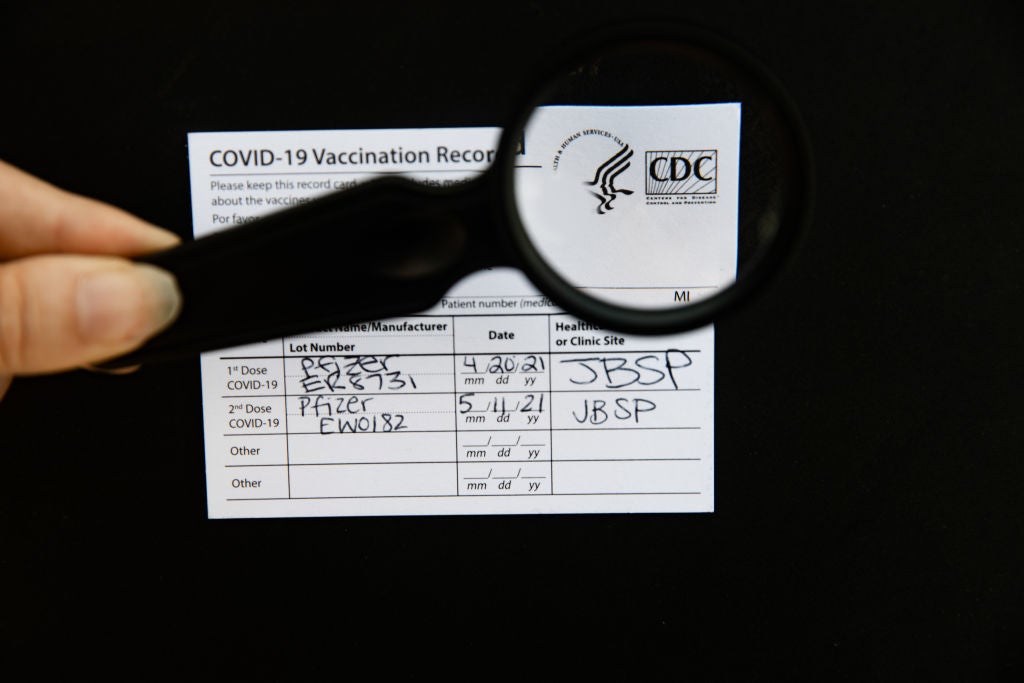
AmaWaterways
Vaccine required no.
AmaWaterways no longer requires proof of vaccination for passengers. However, cruisers are responsible for meeting the requirements of the countries in which they'll be traveling. If they do not, standard cancellation fees will apply. Pre-cruise testing is not required. Should passengers become ill during their cruise, AmaWaterways will assist in procuring testing and other medical services, which will be the financial responsibility of those guests.
American Cruise Lines
American Cruise Lines does not have a vaccine requirement for all passengers on any of its sailings. Pre-cruise testing is no longer required.
American Queen Voyages
Vaccines are not required to sail with American Queen Voyages , and pre-cruise testing is no longer required.
Related: What happens if someone tests positive for COVID-19 on your cruise
Atlas Ocean Voyages
Vaccination is not mandatory for Atlas cruises, but passengers must comply with regulations in countries on their scheduled itinerary, which could require that they be up to date on their shots. Additionally, pre-cruise testing is no longer a requirement.
Avalon Waterways
Avalon Waterways no longer requires proof of vaccination or a negative test prior to passenger boarding. However, mandatory testing and proof of vaccination could still be required in some countries the line visits.
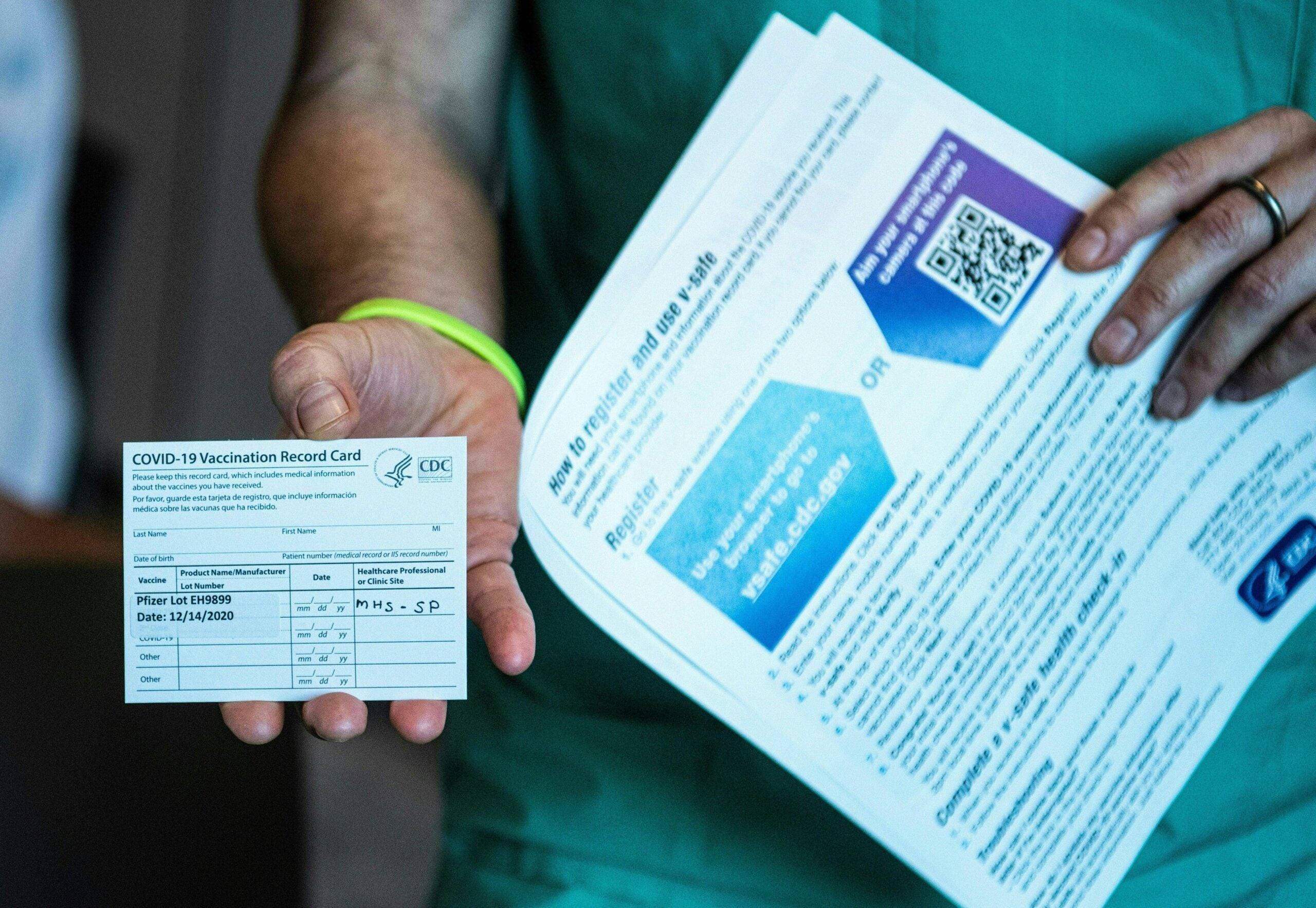
Azamara recommends that passengers follow local regulations and the latest guidance from government health organizations when determining which vaccines to obtain prior to travel. The line also does not require negative test results in order to board unless mandated by local governments in the ports where the line's ships sail.
Carnival Cruise Line
Neither vaccines nor pre-cruise testing is required for Carnival sailings. However, the line recommends that anyone 5 years or older be up to date on their shots and carry proof. It also suggests that cruisers test themselves no further than three days from their sailing date to make sure they're in good health.
Celebrity Cruises
Celebrity does not mandate vaccination or testing for any passenger on any sailing unless required by regulations in the ports its ships are visiting.
Related: Cruise ship contact tracing: How the world's major lines are tracking COVID-19 exposure
Celestyal Cruises
Celestyal continues to require all crew members to be fully vaccinated, but passengers don't have to be. The line recommends anyone 12 and older be up to date on their inoculations. Testing is also no longer necessary in order to board Celestyal ships.
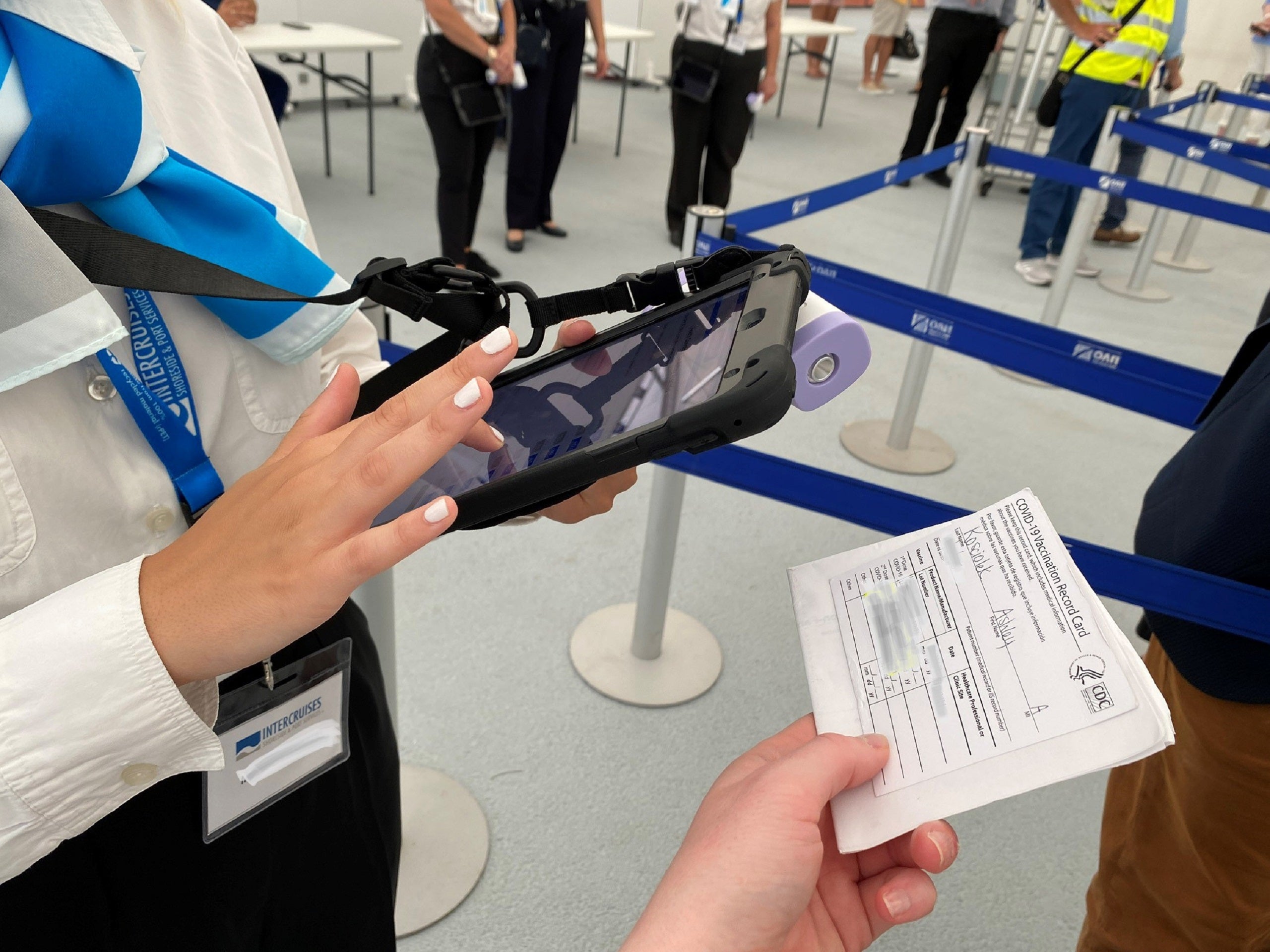
Cunard Line
Although Cunard suggests that travelers be fully vaccinated and current with their boosters, proof of immunization is not required, nor is pre-cruise testing for any of the line's sailing unless required by law.
Disney Cruise Line
Disney Cruise Line encourages — but does not require — all passengers to be fully vaccinated before sailing. It also recommends pre-cruise testing, no more than two days prior to embarkation, for anyone who doesn't have their shots.
Emerald Cruises
Emerald Cruises suggests that all passengers be vaccinated, but it no longer checks for proof. Pre-cruise testing is also no longer required, but the line advises travelers to check local regulations in the places they'll be visiting.
Grand Circle Cruise Line
Vaccine required yes.
Grand Circle has mandated that all passengers must be fully vaccinated at least 14 days prior to embarkation as a condition of carriage, and proof must be provided before boarding. Passengers who are not fully vaccinated will have to return home at their own expense. Boosters are not mandatory. Pre-cruise testing might be required, depending on your port of embarkation. (The line will send you that information prior to your sailing.)
Hapag-Lloyd Cruises
Hapag-Lloyd does not require vaccinations or pre-cruise testing as a condition of sailing. However, the line recommends both to passengers as precautions. It also advises that cruisers are responsible for knowing and adhering to all local guidelines and regulations.
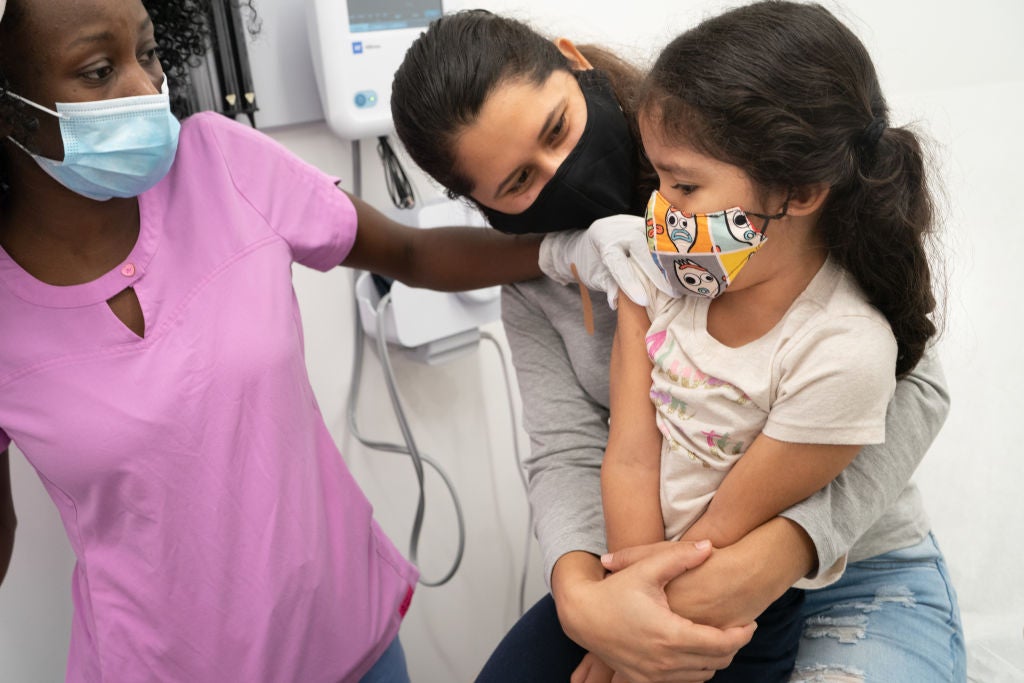
Holland America
Holland America now allows unvaccinated passengers to sail and does not make pre-cruise testing compulsory unless either of these is required by local regulations in the areas its vessels sail. Booked cruisers can search for requirements specific to their individual sailings by using this tool .
Hurtigruten
Vaccine required sometimes.
On expedition cruises with Hurtigruten , passengers are not required to show proof of vaccination, except on 2023 and 2024 voyages to Antarctica and the Northwest Passage or West Africa sailings departing from and returning to Dakar. Immunization is also not necessary for the line's non-expedition itineraries, but it is recommended for both coastal voyages and expedition cruises. Neither type of cruise requires negative test results as a condition of embarkation. Passengers with reservations can check specific protocols for their specific bookings using this tool .
Lindblad Expeditions
Lindblad passengers no longer need to provide proof of vaccination in order to cruise, and pre-cruise testing is no longer required, including at embarkation. Exceptions might apply for departures from certain destinations. The line urges passengers to follow government recommendations for masking, testing and vaccination.
Related: Why I feel safer now on a cruise ship than in my hometown
MSC Cruises
Vaccination and testing are no longer terms of carriage when sailing with MSC Cruises . The line still recommends that passengers receive their shots and notes that it's each passenger's responsibility to comply with local regulations in the places their sailing visits.
Norwegian Cruise Line
In early August 2022, Norwegian Cruise Line became the first major cruise line to roll back its vaccination requirements. Proof of immunization is no longer required, nor is testing in order to board for any voyage.
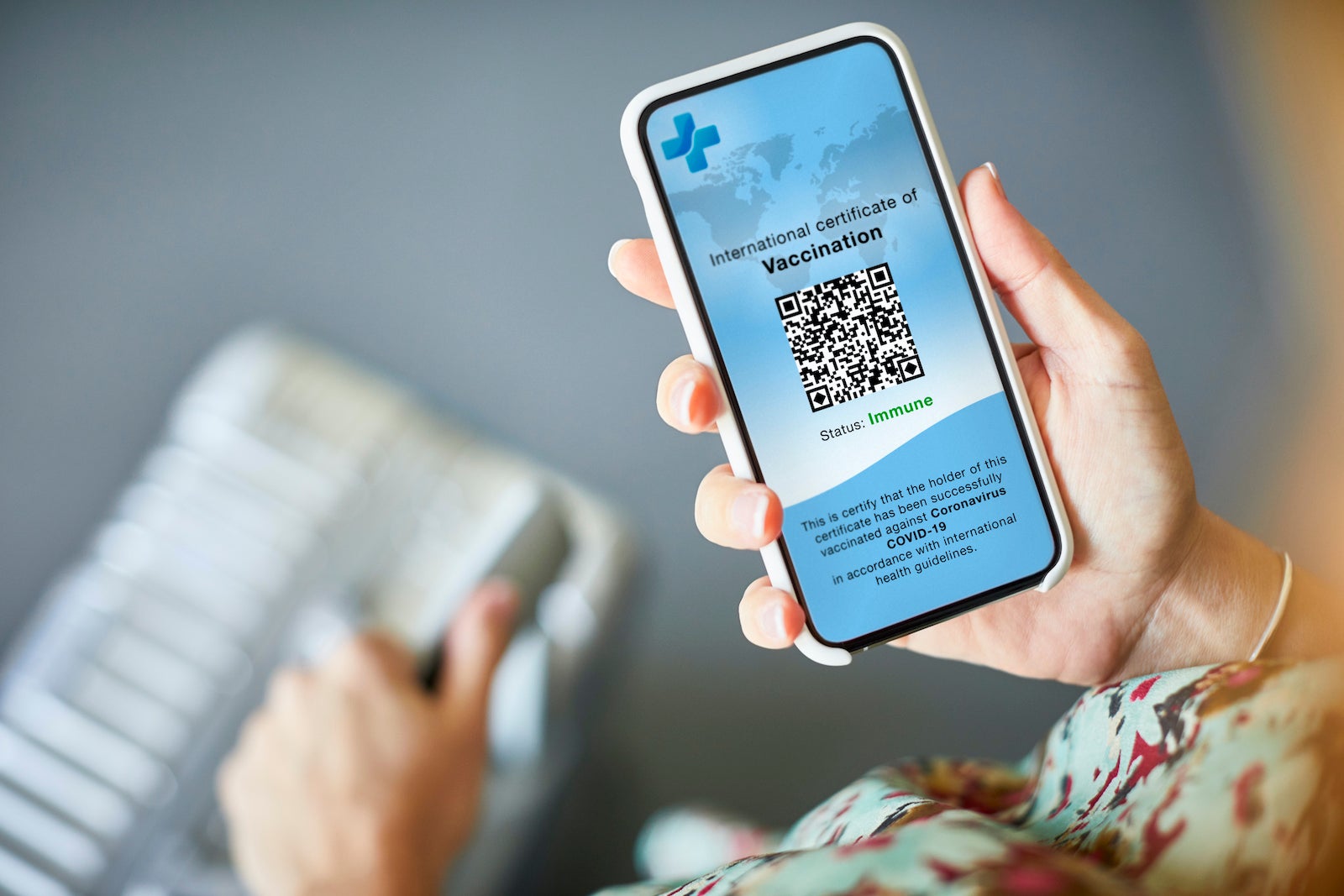
Oceania Cruises
Upscale cruise line Oceania does not check vaccination records for passengers, nor does it require pre-cruise testing for its sailings.
P&O Cruises
There are no vaccination or testing mandates in place for any of P&O Cruises ' voyages.
Ponant 's website simply reads, "when you visit certain destinations, vaccines can be recommended," but they are not required by the line. Ponant also says it will alert passengers to their specific requirements after they have booked a voyage. Testing is also not needed in order to board.
Princess Cruises
Following an industry-wide rollback of protocols, Princess passengers no longer have to show proof of a COVID-19 vaccine, nor proof of a negative test result, unless either is required by local regulations. Passengers are responsible for knowing the requirements for the places their ships will visit.
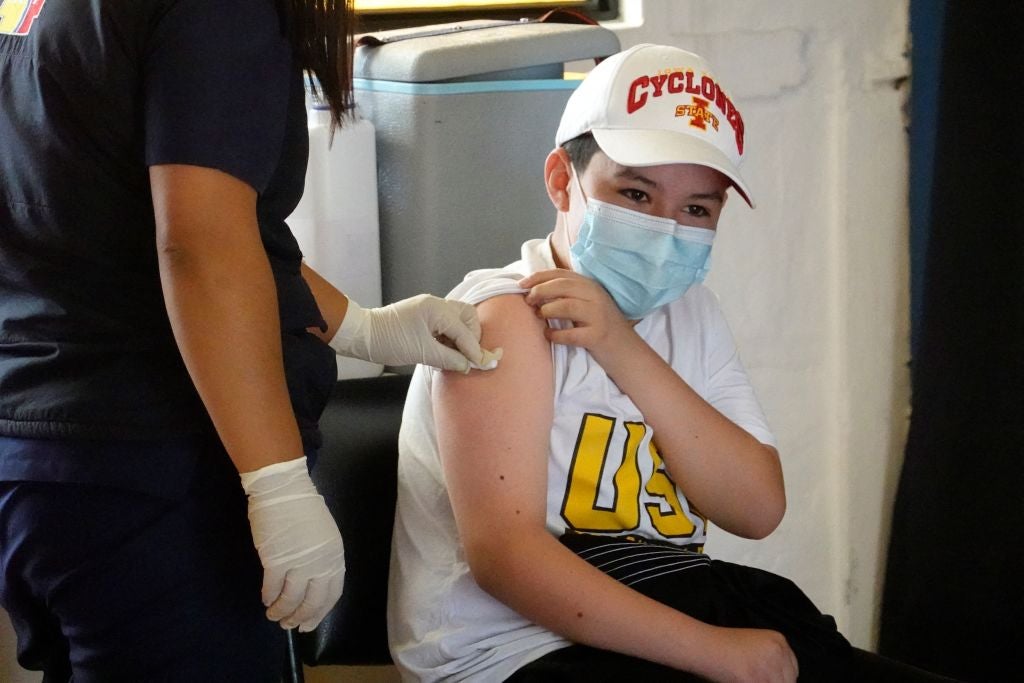
Regent Seven Seas Cruises
Regent doesn't check the vaccination status of any of its passengers unless required by local protocols. Testing requirements vary by location and might depend on whether or not you are up to date on your shots. If vaccination or testing is required, the line will alert cruisers approximately 30 days prior to their sailing date.
Royal Caribbean
To board Royal Caribbean ships, you don't have to be vaccinated or provide test results. However, the line advises staying up to date on inoculations and following guidelines issued by federal health authorities.
Saga has rolled back its vaccination and testing requirements, which is significant, given that the line only allows passengers 50 and older to sail on its vessels. They will only be required if local authorities dictate them.
Scenic Luxury Cruises & Tours
Passengers embarking on river and ocean voyages with Scenic will not need to be fully immunized prior to sailing. Testing is not required by the line but might be needed to enter the country in which you're embarking on your sailing. Passengers are responsible for meeting entry requirements.
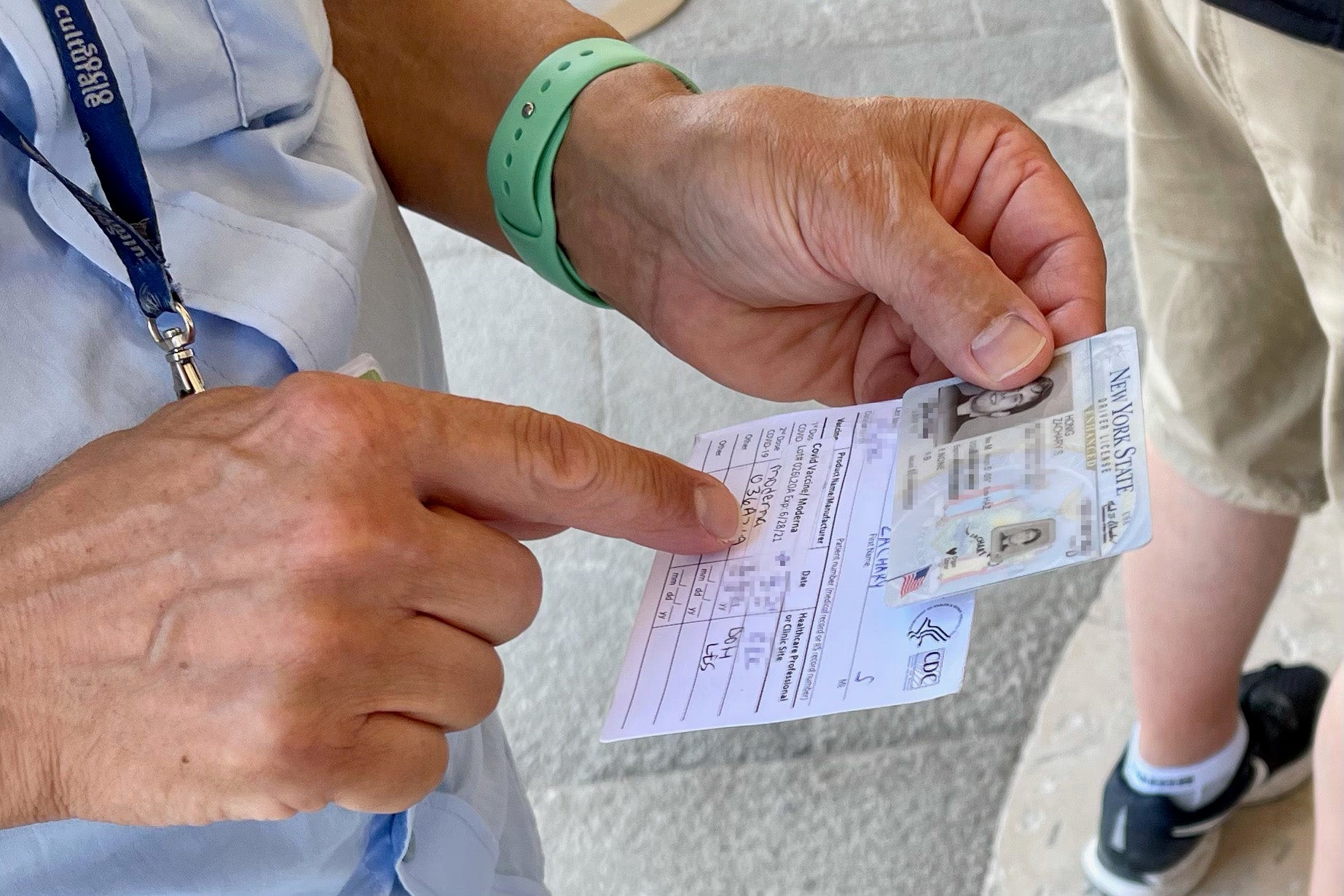
For cruises with luxury line Seabourn , there are no line-enforced regulations for vaccination or testing unless required by local authorities in the countries on which its vessels call. To see if your booked sailing requires either of these, check out the line's search tool .
Luxury brand Silversea does not require shots for its passengers or pre-cruise tests unless they're needed to meet local regulations.
Star Clippers
Star Clippers has eliminated all vaccine checks and testing protocols for all passengers on all voyages.
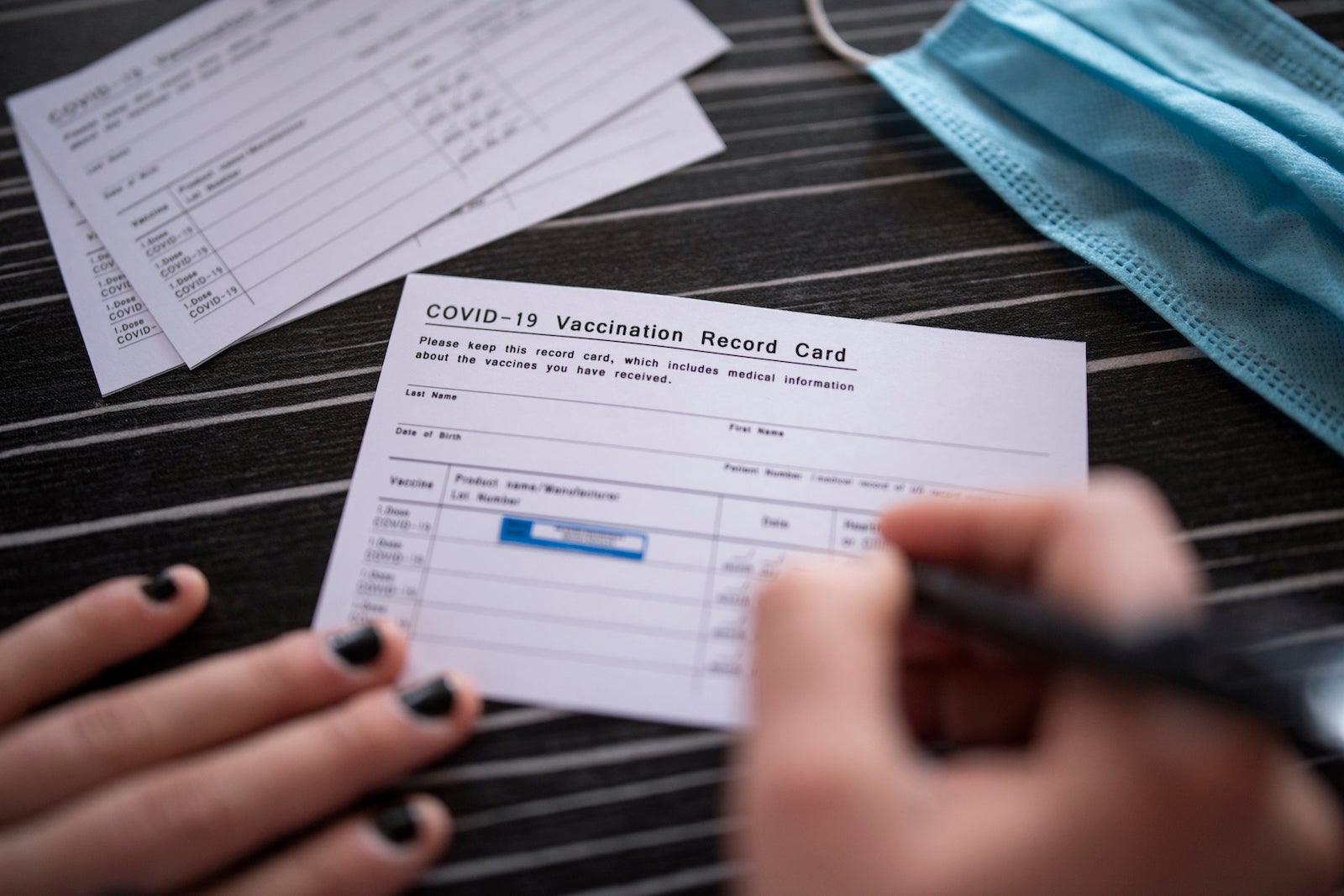
For all voyages through 2023, Tauck requires passengers 12 and older to be fully vaccinated and have at least one booster dose and/or show proof of recovery from COVID-19. Passengers 11 years old and younger are not required to be fully vaccinated. If they aren't fully vaccinated or don't have a booster, they must provide proof of a negative PCR or antigen test result from a test taken no more than three days prior to embarkation. For sailings in 2024, vaccination and testing requirements will be waived for all passengers.
UnCruise Adventures
All UnCruise passengers are exempt from vaccine and testing requirements. The line will continue to monitor the effects of new variants, as well as CDC recommendations and will adjust its policies accordingly.
Uniworld Boutique River Cruise Collection
Testing requirements are determined by the countries the ships visit, but the line itself has no vaccine or testing mandates of its own. You can check the protocols for the places on your itinerary for the most up-to-date information by visiting the protocols page on Uniworld's website .
All Viking passengers, whether on a river sailing or an ocean voyage, must be fully vaccinated for sailings departing on or before Oct. 31, 2023. It will not be required for cruisers embarking on or after Nov. 1, 2023. Testing is no longer required unless passengers are exhibiting symptoms and seek medical assistance.
Virgin Voyages
Virgin Voyages will not check proof of immunization or a negative COVID-19 test prior to boarding.
Windstar Cruises
Windstar no longer mandates shots for passengers of any age. Testing is not required by the line but might be necessary based on local regulations, which with passengers must comply.
Planning a cruise? Start with these stories:
- The 5 most desirable cabin locations on any cruise ship
- The 8 worst cabin locations on any cruise ship
- A quick guide to the most popular cruise lines
- 21 tips and tricks that will make your cruise go smoothly
- 15 ways cruisers waste money
- 15 best cruises for people who never want to grow up
- What to pack for your first cruise
What’s it like to go on a cruise now? Here’s how COVID changed the onboard experience
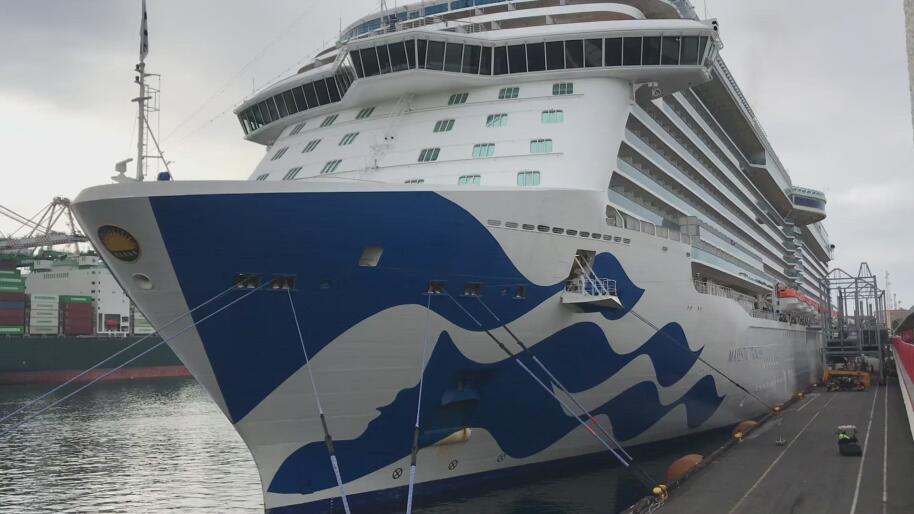
Cruise passengers will see a lot of changes on the ship due to the pandemic.
- Show more sharing options
- Copy Link URL Copied!
The cruise industry suffered its biggest financial blow in decades when the COVID-19 pandemic halted most sailings for months and made nervous cruise fans think twice about booking an ocean voyage.
But cruising is back and all signs point to a turn of the tide for the industry: More cruises are scheduled to depart the Port of Los Angeles next year than in 2019.
Carnival Corp., the world’s largest cruise company, reported that bookings for the second half of 2022 already surpassed bookings for 2019. Royal Caribbean cruises for 2022 are nearly at 2019 levels, the company’s chief financial officer, Jason Liberty, said on a recent earnings call.
Despite the shutdown, the world’s cruise lines have more than 100 new ships on order to set sail by 2027. The Majestic Princess, a ship designed to serve the Chinese market, made its maiden call from the Port of L.A. on Oct. 6. Some 200 cruises are scheduled to depart from there in 2022, up from 120 in 2019.
What are cruise lines requiring of passengers? How have boarding, dining and other activities on board changed? We gathered some information to answer common questions.
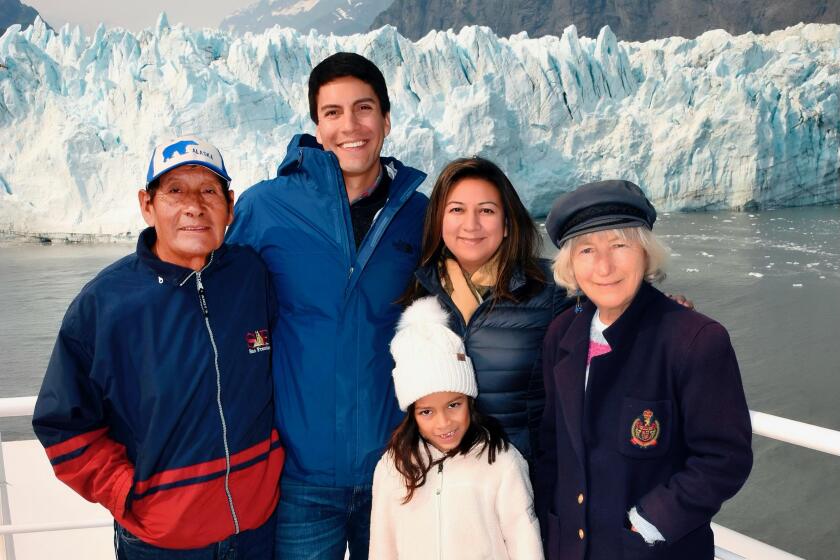
Death on the high seas: Cruise passengers face head winds with COVID lawsuits
Cruise giants Carnival, Princess, and Royal Caribbean — which face dozens of COVID-19 related lawsuits — have the legal upper-hand, experts say.
Nov. 3, 2021
Do I have to be vaccinated to go on a cruise?
The U.S. Centers for Disease Control and Prevention recommends all passengers be fully vaccinated before boarding a cruise ship. The world’s largest cruise companies now require passengers leaving U.S. ports to be fully vaccinated, with limited exceptions. Vaccines are required for passengers on Carnival , Princess , Royal Caribbean and Celebrity cruise lines.
You will usually be required to show proof of vaccination at the terminal before boarding. Some cruise lines will also require passengers — whether vaccinated or not — to show proof of a COVID-19 test taken within two days of boarding a vessel. Check the requirements and protocols of your particular cruise.
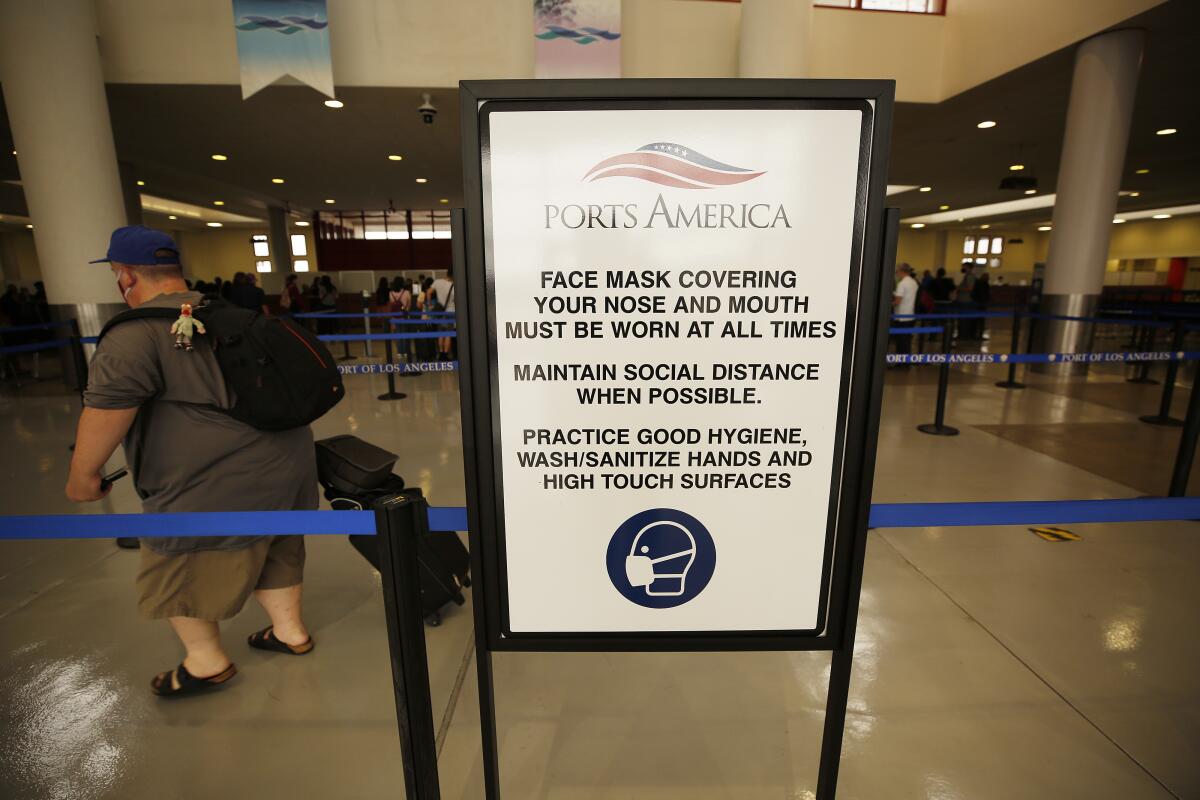
Do I have to wear a mask at all times on the ship?
Passengers are strongly encouraged to wear masks in public spaces and are required to do so in such indoor areas as elevators, stores, casinos and dining halls, except when eating or drinking. You typically won’t be required to wear masks around the pool and hot tubs, but deck chairs are spaced farther apart than in the past to maintain physical distance.
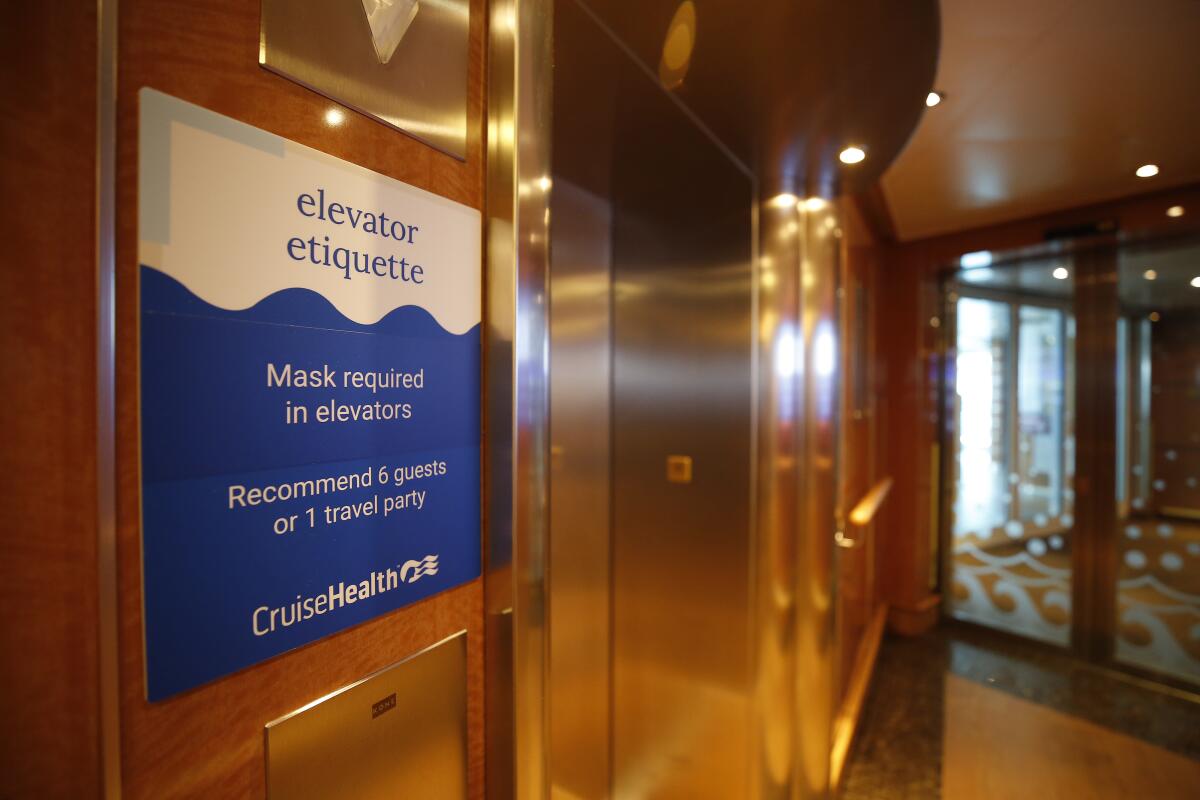
What about shore visits and excursions?
To go onshore, you must meet the health protocols of the country the ship visits. The government of the Bahamas, for example, recently announced that all cruise visitors must be fully vaccinated, with the exception of travelers under age 12 and those with medical exemptions.
On some ships, such as Carnival Cruises, unvaccinated passengers are not allowed to go onshore except with a pre-booked “bubble tour,” in which passengers travel with friends and family in a controlled environment. On other cruise lines, such as Holland America, shore excursions managed by the ship are strongly encouraged.
Are ships sailing at full capacity?
Most ships are sailing at less than full capacity, partly to encourage physical distancing. The Majestic Princess left on its maiden voyage from the Port of Los Angeles at about 60% capacity. The cruise lines plan to increase capacity over the next few months.
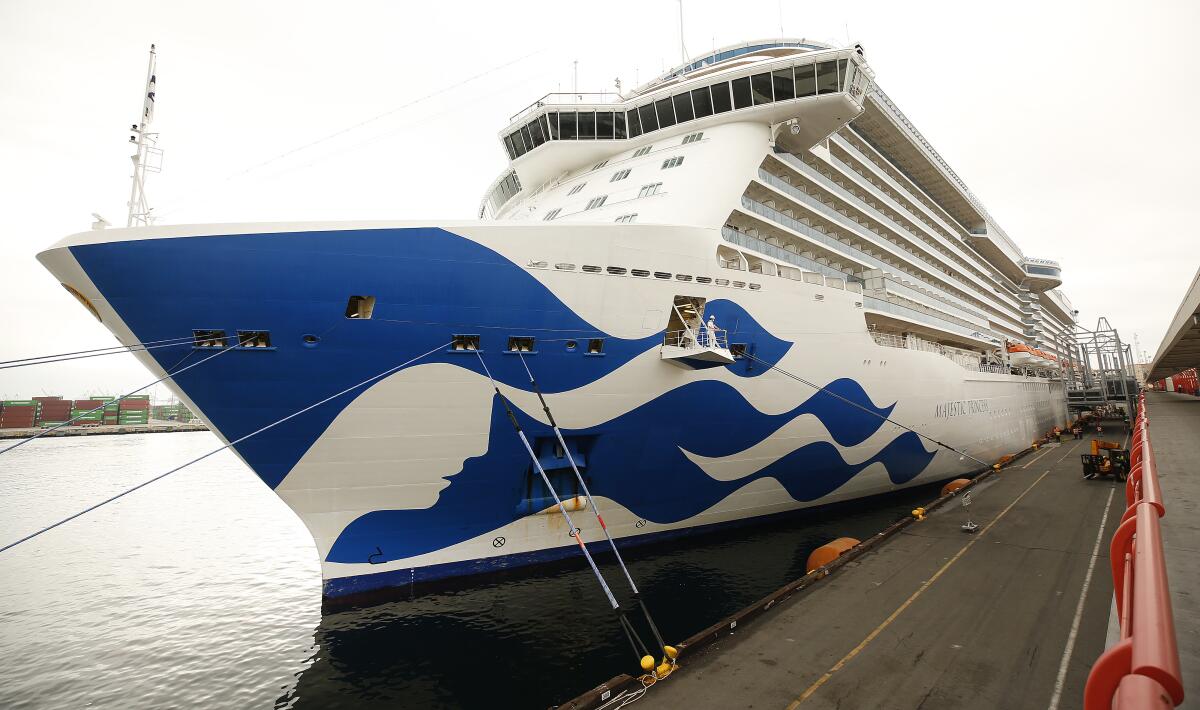
Have any activities been eliminated because of COVID-19?
You won’t be lining up at the buffet for meals. Most self-serve buffets have been modified so that employees serve passengers to avoid unnecessary crowding. Indoor dancing, karaoke and nightclubs are no longer allowed on many ships, including the Majestic Princess, which converted its karaoke area into extra room for spa treatments. On some ships, passengers won’t be allowed to try on clothing for sale. Physical distancing is encouraged for all activities.
Will I need to make reservations for dining and other onboard activities?
To manage capacity and physical distancing, many onboard restaurants recommend reservations and will limit groups at dining tables to eight. On Princess Cruises, reservations can be made through the MedallionClass app. On Celebrity Cruises, reservations can be made on the Celebrity Cruises App.
What else do I need to know?
You won’t be required to assemble at a designated spot on the ship to hear the pre-departure safety instruction, also known as the “safety muster drill.” Instead, passengers can watch parts of the safety drill on their stateroom televisions or on a cruise ship app.
Spas and gyms remain open, but some cruise lines limit them to vaccinated guests. Hand sanitizer stations can be found throughout the ships.
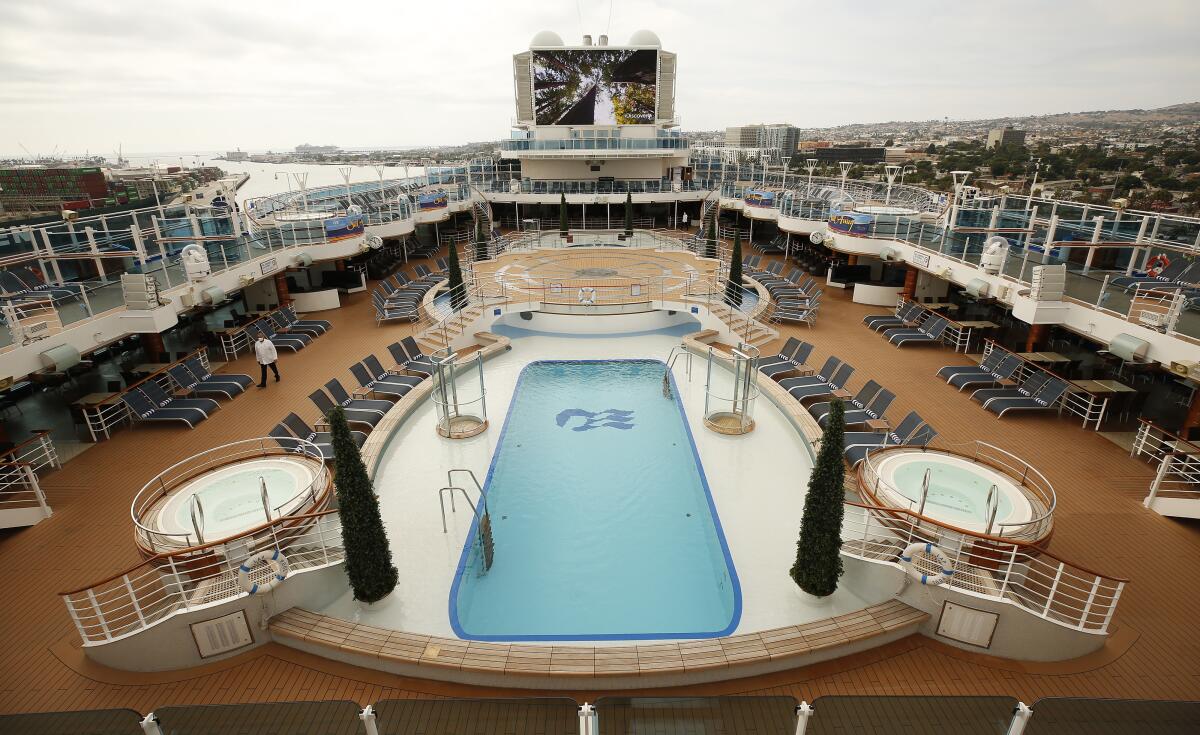
More to Read
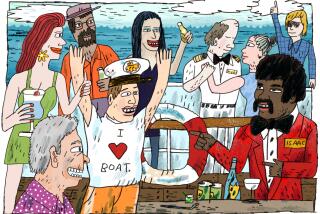
Where can you find your people? More travelers are looking to themed cruises
Jan. 11, 2023

Laura Benanti, Kristin Chenoweth, Alan Cumming board Broadway cruise for spring 2023
June 22, 2022
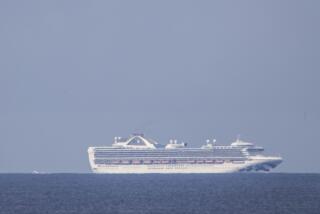
Guests and crew members test positive for COVID-19 aboard Princess Cruise ship
March 27, 2022

Hugo Martín is an assistant editor on the Fast Break Desk, the Los Angeles Times’ breaking news team. He has been a journalist with the Los Angeles Times for more than 30 years, covering politics, transportation, travel, business and the outdoors. A native Californian, Martín was part of the Metro staff that won Pulitzer Prizes in 1993, 1995 and 1998. He is an avid outdoorsman, a proud father and die-hard Lakers fan.
More From the Los Angeles Times

Google employees stage sit-ins to protest company’s contract with Israel

Most of Wall Street slips as expectations rise for rates to stay high
April 16, 2024

Company Town
News publishers’ alliance calls on feds to investigate Google for limiting California links

Climate & Environment
The EV market is in trouble: The latest sign is Tesla’s layoffs
- Share full article
Advertisement
Supported by
On Cruise Ships, Omicron Puts Safety Protocols to the Test
Many lines are adjusting their masking, testing and vaccine rules, while criticism is mounting about the lack of transparency in reporting positive cases to passengers and crew members.

By Ceylan Yeginsu
By the time the Norwegian Breakaway cruise ship docked in New Orleans on Dec. 4, after a weeklong cruise that included stops in Belize, Honduras and Mexico, 17 coronavirus cases had been identified on the ship, including a case of the new Omicron variant. The local and federal health authorities were notified — but not all the disembarking passengers.
“I only found out after I got home and saw it on the news,” said Betsy Rodriguez, a retired veterinarian who took the Caribbean cruise with her daughter. “We felt pretty safe knowing everyone on the ship was vaccinated, but I guess it would have been good to know people tested positive so we could have been more careful.”
Since the cruise industry restarted operations in the United States this June, its efforts to keep the coronavirus at bay — or at least contained, unlike the major outbreaks experienced in 2020 — have been largely successful. Most cruise companies mandate full vaccinations for crew and most passengers, and have implemented strict health and safety protocols to swiftly identify coronavirus cases onboard and reduce their spread.
But in recent months, as new and highly contagious variants have emerged and case numbers steadily increase worldwide, these measures are being put to the test. Many lines are adjusting their masking, testing and vaccine rules, while criticism is mounting about the lack of transparency in reporting positive cases to passengers and crew members during sailings.
A crew member on the Breakaway, who spoke on the condition of anonymity because he was not permitted to speak to the news media, said he first heard about the outbreak from a friend and fellow employee. When he contacted management, they neither shared the number of positive cases nor identified who was infected.
“I would like to know who tested positive because this new variant spreads very quickly and I have a medical condition which means I need to be very careful and protect myself,” he said, voicing concern that if he became sick, he could be sent back to his home country. “I can’t afford that because I need to take care of my family at home.”
Most cruise companies do not publicly announce the number of coronavirus cases identified during sailings, but all cruise ships operating to and from U.S. ports must submit daily numbers to the Centers for Disease Control and Prevention, which uses a color-coded system to inform the public whether the number of cases is above or below the agency’s threshold for an investigation. Sharing this data is one of many requirements in the Framework for Conditional Sailing Order, a series of C.D.C. guidelines that cruise companies must follow to operate in U.S. waters.
The 17 cases on board the Norwegian Breakaway were first publicly reported by the Louisiana State Department of Health on Dec. 4. All passengers and crew members — more than 3,200 people — onboard were fully vaccinated, following the company’s policy.
Norwegian declined to comment on its policies for reporting cases on board its ships or whether any additional Breakaway crew members tested positive after passengers disembarked.
“All the identified cases onboard were asymptomatic,” a company spokesman said in a statement. “We implemented quarantine, isolation and contact tracing procedures for identified cases and tested all individuals on Norwegian Breakaway before disembarkation.” In addition, he said, passengers were given “post-exposure and quarantine public health guidance” as laid out by the C.D.C.
Reporting to the C.D.C.
The coronavirus wreaked havoc on the cruise industry in the early stages of the pandemic , infecting hundreds of cruise passengers and workers, and requiring the sector to shut down for 18 months. To begin sailing, cruise ships had to agree to the C.D.C.’s Conditional Sailing Order, which is valid until Jan. 15.
Among the safety measures the order requires — beyond submitting the daily number of coronavirus cases — is a prevention and control plan for each cruise ship. The plan, said Bari Golin-Blaugrund, a spokeswoman for the Cruise Line International Association trade group, includes “procedures for informing passengers and crew members that a threshold of Covid-19 has been met or exceeded.”
“The reporting requirements and practices of the cruise industry are practically unmatched compared to other sectors in the United States, especially within the travel and tourism sector,” she said.
In a C.D.C. report of coronavirus data published last month, cruise operators had reported 1,359 positive cases between June 26 and Oct. 21. During that time, 49 hospitalizations, 38 medical evacuations and one death occurred because of coronavirus infections detected onboard cruise ships.
The report highlighted several large outbreaks, including one in which a symptomatic passenger who tested positive on a ship in July was linked to 20 additional cases over two sailings. One ship reported 58 positive between July 24 and Aug. 28 and another reported 112 cases over four consecutive voyages, which ended on Sept. 7. Most of the cases were breakthrough infections in fully vaccinated passengers.
While the C.D.C. relies on data reported by the cruise companies, the agency also carries out inspections to make sure that cruise ships are in compliance.
With the rise of Delta and Omicron variants, and as the virus surges across the world, cruise lines have been adjusting their health and safety protocols, reinstating measures like mask mandates and requiring additional testing from passengers. Starting Jan. 13, Disney Cruise Line will require all children over the age of 5 to be fully vaccinated against the coronavirus.
Demand remains high
Despite the new restrictions and risks posed by new variants, demand for future cruises remains high. Carnival, the world’s largest cruise company, reported that its bookings for the second half of 2022 have surpassed bookings for 2019. Royal Caribbean said the Delta variant had hit bookings in 2021 and 2022, but not for 2023.
“I think what people have been saying is, I want to get out there, but I don’t want to do it too soon. I want to make sure that things have stabilized,” Richard D. Fain, chairman and chief executive of Royal Caribbean Cruises, said in the company’s last earnings call in October.
Miranda Gibson, 63, an avid cruiser from Tampa, Fla., took two cruises this summer, but then canceled three cruises she had planned for the rest of the year because of her concerns over the Delta variant.
“The first cruise I took in June in the Caribbean was heaven because everyone was vaccinated, Covid was under control and it was the first time in so long that we could have some carefree fun,” she said.
“Now with the variants everything is prickly again and you can’t really get a true relaxing cruise experience when you are worrying about Covid and masks and rules,” she explained. “I’m booked in June 2022 and I know I’ll be tempted to go before then but I’m going to wait until it’s safer.”
Others believe cruise ships are among the safest vacation environments, because of the vaccine requirements and testing protocols.
“When you’re on a plane, or in a hotel or at a theme park you don’t know who has Covid around you,” said Timothy Ryan, 67, a retired financial trader from Miami who has 16 cruises booked through 2022. “On a cruise, it’s detected right away and the positive cases are isolated, so you can continue your vacation in a Covid-free bubble. I really don’t know a safer way to travel.”

52 Places to Love in 2021
We asked readers to tell us about the spots that have delighted, inspired and comforted them in a dark year. Here, 52 of the more than 2,000 suggestions we received, to remind us that the world still awaits.
Follow New York Times Travel on Instagram , Twitter and Facebook . And sign up for our weekly Travel Dispatch newsletter to receive expert tips on traveling smarter and inspiration for your next vacation.
Ceylan Yeginsu is a London-based reporter. She joined The Times in 2013, and was previously a correspondent in Turkey covering politics, the migrant crisis, the Kurdish conflict, and the rise of Islamic State extremism in Syria and the region. More about Ceylan Yeginsu
Come Sail Away
Love them or hate them, cruises can provide a unique perspective on travel..
Cruise Ship Surprises: Here are five unexpected features on ships , some of which you hopefully won’t discover on your own.
Icon of the Seas: Our reporter joined thousands of passengers on the inaugural sailing of Royal Caribbean’s Icon of the Seas . The most surprising thing she found? Some actual peace and quiet .
Th ree-Year Cruise, Unraveled: The Life at Sea cruise was supposed to be the ultimate bucket-list experience : 382 port calls over 1,095 days. Here’s why those who signed up are seeking fraud charges instead.
TikTok’s Favorite New ‘Reality Show’: People on social media have turned the unwitting passengers of a nine-month world cruise into “cast members” overnight.
Dipping Their Toes: Younger generations of travelers are venturing onto ships for the first time . Many are saving money.
Cult Cruisers: These devoted cruise fanatics, most of them retirees, have one main goal: to almost never touch dry land .
National Geographic content straight to your inbox—sign up for our popular newsletters here

- CORONAVIRUS COVERAGE
How cruise lines are adapting to COVID-19 in the age of Omicron
The pandemic keeps disrupting the cruise industry. Here’s how to navigate if you plan to set sail.
The pandemic is upending the cruise industry once again.
In late December, just six months after cruise ships resumed sailing from United States ports, onboard cases of COVID-19 began to skyrocket—rising from 162 in the first two weeks of the month to 5,000 in the latter half of the month. As U.S. Centers for Disease Control and Prevention director Rochelle Walensky recently told lawmakers , it was about a 30-fold increase.
In the weeks that followed, the CDC warned travelers to avoid cruises even if they’re fully vaccinated . There has been a flurry of cancellations, including several Royal Caribbean and Norwegian Cruise Line sailings , because of crew members calling in sick and destinations closing their ports to cruises. The ships that do set sail have had to tighten their COVID-19 protocols—which include vaccine mandates, testing, and masking—and make last-minute itinerary changes.

Further complicating matters, the CDC’s Conditional Sailing Order—a framework of mandatory safety procedures for foreign-flagged ships in U.S. waters—expired on January 15. Following that guidance will now be optional for cruise ships, meaning they will be able to chart their own safety course.
For people who planned their trips months or even years before Omicron’s arrival, these rapidly changing circumstances have proven almost impossible to navigate around.
“People traveling at all right now have to be very flexible,” says Chris Gray Faust, managing editor of online industry publication Cruise Critic . “Dig into what your cruise line is requiring. What was the policy a month ago may not be the policy today.”
So how can travelers make sense of it all? Here’s what experts say.
How are COVID-19 protocols changing?
Eager to shed their early pandemic reputation as floating disease carriers, cruise lines worked with the CDC to institute fairly rigorous onboard COVID-19 protocols—the agency’s condition for allowing ships to sail from U.S. ports again. The CDC laid out guidance for testing crew and passengers and how to deal with outbreaks. Most cruise lines also instituted vaccine mandates.
( These photos show the surreal world of cruising during the pandemic’s height .)
Not much will change for the ships that participate in the CDC’s new voluntary program. They will still report COVID-19 data to the agency daily and follow specific testing regimes for passengers and crew. Cruise lines won’t get to choose which protocols to follow either, says Captain Aimee Treffiletti, head of the CDC’s maritime unit. If they choose to participate, they must agree to everything.
Norwegian Cruise Line has already indicated that it will join the CDC program. Brian Salerno, senior vice president of global maritime policy for the Cruise Lines International Association , expects many cruise lines will ultimately take part. He argues that cruise lines have often gone beyond CDC requirements—installing air purification technology or even onboard PCR testing laboratories —and aren’t likely to start slacking now.
“It’s a business imperative to do this right,” Salerno says. “Nobody’s going to relax during Omicron.”
It’s also a matter of public image. The CDC plans to continue issuing each ship a color-coded status that anyone can access to check transmission at any given time. Ships that are shaded green have no reported cases of COVID-19, while those that are shaded red are under CDC investigation. Cruise lines that aren’t part of the voluntary program will be shaded gray. Those ships may have their own health and safety protocols, but they haven’t been reviewed by the CDC.
“Nobody wants to be gray,” Salerno says. “Obviously everybody wants to be green.”
But with Omicron cases soaring, why is the CDC loosening its grip on the cruise industry? Treffiletti says the agency is confident that it has identified the best practices for mitigating transmission aboard a cruise ship—which she emphasizes was done in partnership with cruise lines. Now, she says, the CDC has decided to flex its regulatory authority “on a case-by-case basis rather than shutting down all the cruise ships at once.”
The CDC will still be able to board any ship in U.S. waters and conduct inspections, she points out. Ships that aren’t participating in the voluntary program will also have to report every case of COVID-19—just not every day—and will still be subject to the agency’s order requiring masks on public transportation .
How do the vaccine mandates work?
Most cruise lines currently require all passengers, including eligible children, to be fully vaccinated (meaning two doses of Pfizer or Moderna, one dose of Johnson & Johnson, or a WHO-approved equivalent). Salerno says the vaccination rates aboard cruise ships right now are close to 95 percent for passengers and crew members.
Some companies do accommodate children who haven’t gotten a jab: Royal Caribbean and Carnival, for example, require all guests older than 12 to be vaccinated , while younger passengers can board with a negative test. Disney Cruise Lines requires everyone over the age of five to be vaccinated. (The Walt Disney Company is the majority owner of National Geographic Partners.)

Cruise lines also align their vaccination policies with those of their destinations. So even though the United Kingdom considers children fully vaccinated after just one dose of an mRNA vaccine, a ship that sets sail to the Caribbean may only allow children who have had two doses.
Meanwhile, as Omicron spreads, some cruise lines have begun to require booster shots. Beginning February 1, Viking will require anyone who is eligible for a booster dose to get it at least 14 days before setting sail from the U.S. In addition, the CDC recently emphasized that being “up to date” on vaccines includes a booster dose.
Omicron is even more transmissible than the Delta variant—and better at evading vaccine immunity. But while the vaccines are no longer as effective at preventing you from getting infected, they are still the best protection, says Kathryn Willebrand, an epidemiologist who recently co-authored a study of COVID-19 transmission aboard cruise ships with infectious disease physician Lauren Pischel.
Willebrand points out that vaccines are still effective at preventing severe illness—which is especially important when you’re in the middle of the ocean on a boat whose medical staff might be overwhelmed or sick themselves. “You don’t want to need medical care when you’re far from home,” she says.
( Can booster shots protect you from Omicron? )
How often will you be tested?
Cruise lines have been requiring passengers and crew to test before boarding a ship, although specific requirements differ. Some only accept PCR tests, while others will accept the results of a rapid antigen test—in some cases only if the test is overseen by a health professional . And while some companies require you to get tested before you leave home, others administer tests at the terminal prior to boarding .
Crew members are generally subjected to routine testing throughout the voyage because they’re particularly vulnerable to infection. They spend more time on the ship, in closer quarters, and tend to have more interaction with others. But passengers might be required to test before any shore excursion if the port of call requires it, or if they develop symptoms during the trip.
If you don’t have any symptoms, you generally don’t have to be tested before disembarking the ship. Instead, Treffiletti and the CDC recommend getting tested five days after your trip. However, Gray Faust cautions that if you’re flying internationally, your final destination may require a negative test—or the cruise line may administer tests to everyone if there’s a particularly bad COVID-19 outbreak on board.
( 5 things to know about COVID-19 tests in the age of Omicron .)
What happens if there’s an outbreak?
Still, COVID-19 has proven adept at slipping past these protocols, particularly in the time of Omicron. Since COVID-19 is airborne and cruise ships are enclosed environments, the boats are higher risk environments for transmission, says Willebrand. Thousands of people pass through dining rooms, casinos, and other areas where virus particles may be hanging in the air.
Under the CDC guidance , cruise lines are supposed to educate both crew and passengers to identify and report COVID-19 symptoms. If someone onboard develops symptoms, they are tested and isolated until the results come back or until they’re no longer infectious. Those who are still infectious at the end of a journey are typically required to quarantine on shore—and Treffiletti says the CDC can work with cruise lines to facilitate that.
Since passengers are vaccinated, however, close contacts don’t necessarily have to quarantine unless they begin to develop symptoms. Gray Faust says cruise lines have been successful at contact tracing to notify those close contacts for the same reason that cruise ships are so vulnerable to transmission—they are closed communities.
“If you go to a restaurant and the person next to you is sick, you won’t know that,” Gray Faust says. “But on a ship, they do go back and find people. That is something that the cruise ships have developed that really is beyond what other types of travel have done.”
All of this relies on the honor system. Much as we’ve seen on land, there’s always the risk that your fellow seafarers may refuse to comply with mask mandates or hide their symptoms from crew to avoid quarantine. Cruise lines have the power to ask those passengers to disembark and travel home at their own expense.
Still, those rules aren’t always enforced—which is why experts say that the decision to set sail ultimately comes down to your own risk tolerance.
( Here’s what you need to know about traveling during Omicron . )
What can you do to ensure a smoother trip?
Although the CDC recommends that people avoid cruises, Treffiletti says that there are some things you can do to help mitigate your risk if you do decide to travel.
For one, before setting sail, check the color-coded chart on the CDC website to see if your ship is participating in the agency’s voluntary COVID-19 program. If so, you’ll be able to see whether there are any outbreaks on board. If things look grim, most cruise lines have implemented fairly flexible rebooking and cancellation policies.
If you’re just booking now, research the protocols of each cruise line to see if they align with your own comfort level. Gray Faust recommends purchasing trip delay and COVID-19 insurance—an extra cost that will be worth it if you get infected and can’t board your ship.
Gray Faust says your packing list should also account for uncertainties. She recommends packing extra clothing and medication in case you are quarantined at any point. If you can snag them, toss in some extra KN95 masks and rapid antigen tests, too.
But most of all, Gray Faust says cruisers need to go into a trip accepting that there will be health protocols in place—which might change as conditions worsen or improve—and that they’re there to keep you safe.
“You need to be OK with that,” she says. “You can still have a great trip. But you’re protecting yourself and other people by wearing masks and by getting your vaccines.”
National Geographic Expeditions and Adventures by Disney offer cruise departures to many destinations around the world. The Walt Disney Company is the majority owner of National Geographic Partners.
Amy McKeever is a senior writer and editor at National Geographic. You can find her on Twitter .
Related Topics
- CORONAVIRUS
- PUBLIC HEALTH
- CRUISE SHIPS
You May Also Like


5 things to know about COVID-19 tests in the age of Omicron

11 of the best wildlife cruises for 2024 and beyond
Free bonus issue.

In search of wildlife on a one-day cruise off the coast of Cornwall, UK

In this one-house town, Alaska’s wilderness is at your fingertips

What it's like to cross Antarctica's Weddell Sea

How to spend 10 days exploring the Croatian islands

Shipwrecks, snorkelling and coral reefs: the Maldives by small-ship cruise
- Perpetual Planet
- Environment
- Paid Content
History & Culture
- History & Culture
- Photography
- Mind, Body, Wonder
- Gory Details
- 2023 in Review
- Best of the World
- Terms of Use
- Privacy Policy
- Your US State Privacy Rights
- Children's Online Privacy Policy
- Interest-Based Ads
- About Nielsen Measurement
- Do Not Sell or Share My Personal Information
- Nat Geo Home
- Attend a Live Event
- Book a Trip
- Inspire Your Kids
- Shop Nat Geo
- Visit the D.C. Museum
- Learn About Our Impact
- Support Our Mission
- Advertise With Us
- Customer Service
- Renew Subscription
- Manage Your Subscription
- Work at Nat Geo
- Sign Up for Our Newsletters
- Contribute to Protect the Planet
Copyright © 1996-2015 National Geographic Society Copyright © 2015-2024 National Geographic Partners, LLC. All rights reserved
- Enable Accessibility

- 00800 0310 21 21 1-855-577-9489 1-877-288-3037 1-877-288-3037 1-877-474-2969
- | NCL Travel Blog">11-Reasons to Cruise to Alaska this Summer | NCL Travel Blog
- | Norwegian Cruise Line">14-Day Authentic Alaska - Northbound Cruise Tour | Norwegian Cruise Line
- | Deck Plans | Norwegian Cruise Line">14-Day Authentic Alaska - Southbound Cruise Tour | Deck Plans | Norwegian Cruise Line
- | Norwegian Cruise Line">20-Day Transpacific from Tokyo (Yokohama) & Alaska | Norwegian Cruise Line
- | NCL Travel Blog">11 Reasons to Cruise to Alaska this Summer | NCL Travel Blog
- View All Results
- Preferences
- Latitudes Rewards
- Special Offers
- Personalised Recommendations
- Make reservations before you cruise
- 1 (current)
* Terms & Conditions Package not available on sailings less than 5 days or charter sailings.
- 00800 0310 21 21

- Country Requirements
- Ship Safety
- Email Sign Up For Special Offers
- Phone Let Us Call You
With the relaxation of travel requirements around the world, we’re thrilled to welcome all guests back on our ships to cruise freely to the places they’ve been dreaming of – regardless of vaccination status and with no testing requirements.
Destination specific requirements will still need to be met. For specific country requirements, please visit Cruise Travel Requirements by Country .
Benefits of 100% Vaccination Requirements*
- Cruise Mask-free**
Breathe freely and witness smiles everywhere you go!
- No Social Distancing Required
Get up close and personal with confidence, everyone on board is vaccinated.
- All Restaurants & Experiences Are Fully Open
Dine in any of our restaurants mask-free, including our self-service buffet. Plus enjoy all entertainment options.
- No Restrictions on Shore Excursions †
Feel Free to take the shore excursion you’ve been dreaming of or explore on your own!
- No Capacity Restrictions
Appreciate the full Norwegian experience — all venues and experiences are entirely open.
- Surround Yourself in Safety
Peace of mind knowing all guests and crew on board are fully vaccinated.
*As government regulations evolve, our health and safety protocols will evolve as needed to ensure compliance. This may mean different protocols from ship to ship based on local requirements. For additional information, please visit Cruise Travel Requirements by Country .
**On Europe sailings only, currently local government regulations requires all guests to wear masks onboard. Refer to FAQs section for complete details.
† Due to local government regulations, guests are required to take a Norwegian Cruise Line shore excursion while visiting Colón, Panama; St. Kitts and ports in Italy as guests will not be allowed to explore on their own.
Safety FOR OUR GUESTS & CREW
Safety aboard our ships, safety ashore.
We have developed a comprehensive and multi-layered set of health and safety protocols that span the entire cruise journey, guided by the expert advice from our Healthy Sail Panel. We will continuously refine and improve these protocols as science, technology and our knowledge of the virus improve and will provide guests with all relevant information or any changes to protocols prior to setting sail.
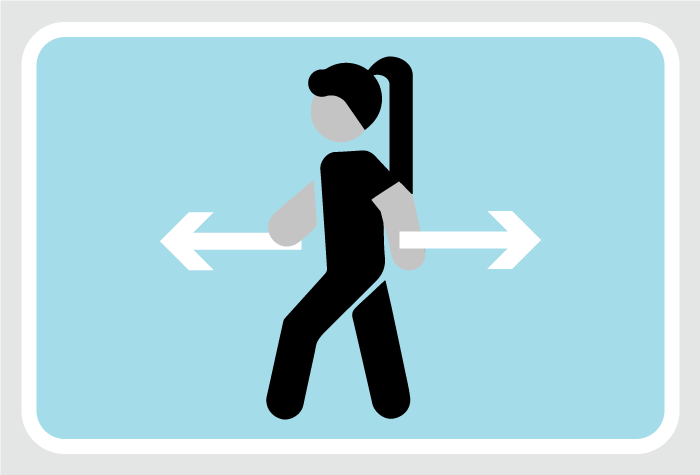
We will initially control the guest capacity onboard each ship to provide even more space per guest and allow for physical distancing while onboard.
Contactless food and beverage service will be provided across all ships with service staff stationed ship-wide, including all restaurants and lounges.
All guests will be required to engage in frequent handwashing and hand sanitizer will be prominently placed and easily accessible throughout the ship.
Daily temperature checks and ongoing symptom screening will be practiced so you can feel confident your fellow guests aren’t fellow carriers. But don’t worry, looking hot is still okay.
Safety Aboard our Ships
With Sail Safe, our industry leading Health & Safety Programme, we will continue to put our guests and our crew members first by keeping everyone safe and healthy on board our ships and in the communities we visit. In addition to requiring our crew to be up-to-date with all their vaccinations, we will continue to evolve our already robust science-backed programme to broaden our cleaning, sanitation and air filtration technologies across our fleet.
With Sail Safe, our industry leading Health & Safety Program, we will continue to put our guests first by keeping you safe and healthy on board our ships. Here’s what we’re doing.
Continuous Ship-Wide Cleaning & Disinfection Measures
Upgraded medical-grade air filters, enhanced onboard medical teams & health services.
We constantly monitor the health environment across the globe and will modify or cancel itineraries to affected areas as needed.
We’re partnering with our local destinations and tour operators to extend our comprehensive health & safety protocols to shore.
Guests are free to explore ports of call on their own, according to protocols in each specific port, and can purchase shore excursions as they wish. Face coverings may be required in certain settings to comply with local requirements, for example in terminals for embarkation and disembarkation or at ports of call. We will continue to monitor public health guidance, including from the CDC, at the time of your voyage and modify requirements accordingly.
*Due to local government regulations, guests may be required to take a Norwegian Cruise Line shore excursion in select ports. For additional information on this and other destination specific requirements, please visit the Cruise Travel Requirements by Country page.
SAIL SAFE FREQUENTLY ASKED QUESTIONS
Pre-cruise and onboard frequently asked questions.
- Individuals that test positive within 90 days of their scheduled embarkation date are exempted from the pre-arrival testing.
- They must have one of the below acceptable forms of COVID-19 Recovery (dated no less than 10 days and no more than 90 days (US) & 180 days (EU) before the date of embarkation) available during check-in.
- For European Citizens, this would include an EU Green Pass or comparable certificate.
- For all others unable to present an EU Green Pass (i.e., US Citizens) a doctor’s note, plus a laboratory-confirmed PCR test result with the proper information (i.e., Name, Date, Date of Birth, Positive Result, etc.)
- COVID-19 Recovery must be dated no less than 10 days and no more than 90 days (US embarkation) & 180 days (EU embarkation), documentation must be available during check-in.
- Bermuda government does not allow certificate of recovery in lieu of negative test result.
In order to facilitate pre-cruise testing requirements, Norwegian has partnered with Inspired Diagnostics lab to ensure that guests have access to a quick, efficient and easy way to access the required FDA-approved proctored in-home antigen test prior to embarkation from the comfort of their own home. Inspired Diagnostics is a subsidiary of Inspire Health Alliance, a leader in best-in-class health services. Testing at home is safe, simple, and convenient. Purchasing in-home testing kits is simple.
- Sign up on the testing site https://inspirediagnostics.com/ncl/
- Receive the test kit(s) by UPS
- Timetable an on-line proctoring consultation
- Receive certified results via email
Additionally, the following services offer a verified third party or medically supervised at home testing: eMed or BioReference-Scarlett Concierge testing service – BioReference sends a trained Scarlet Health Professional to your home to collect your COVID-19 test specimen.
Should you need to locate a testing provider prior to beginning travel or whilst travelling prior to your cruise, please visit TestForTravel.com , an easy-to-use online tool for locating COVID-19 testing providers around the world. Simply enter your postcode, or city and country, and the website will display locations, contact information, and testing hours. It also allows you to search by test type – PCR or Antigen.
Effective for sailings 10/4/22 and beyond, all guests regardless of vaccination status are able to sail and with no testing requirements. This does not supersede country specific requirements - Travel Requirements by Country
Local regulations may have booster requirements to enter certain countries – make sure to check Travel Requirements by Country to understand country specific requirements.
Local regulations may have vaccine requirements to enter certain countries – make sure to check Travel Requirements by Country to understand country specific requirements about accepted vaccines
As of August 8, 2022, effective for sailings September 3, 2022 and beyond, vaccines will not be required to sail. However, requirements will vary for unvaccinated guests and guests must still adhere to country specific requirements. Refer to Will all guests be required to be vaccinated prior to the cruise? ” and Travel Requirements by Country page.
Hawaii Cruisetours
For sailings through and including September 2, 2022:
For sailings beginning September 3, 2022:
Guests age 11 and younger, and vaccinated guests age 12 and over who have purchased a pre-cruise Cruisetour in Hawaii with Norwegian Cruise Line are not required to be tested prior to the sailing. Unvaccinated guests age 12 and over must provide proof of a medically supervised negative PCR or antigen taken no more than 72 hours prior to embarkation. This test will be facilitated and paid for by Norwegian Cruise Line.
Alaska Cruisetours
Guests age 5 and over who have purchased a pre-cruise Cruisetour in Alaska with Norwegian Cruise Line will undergo a COVID-19 antigen during their program. This test will be paid for by Norwegian Cruise Line. Further details will be outlined by your Tour Manager while on the program.
At this time, our Cruisetour vendors do not require any pre-tour Covid-19 testing; however, Norwegian Cruise Line still recommends all guests participating take a test prior to joining the Cruisetour. Please note that for unvaccinated children ages 2 through 11, the pre-embarkation testing requirements as listed on Sail Safe and Travel Requirements by Country are required to be met.
If a Cruisetour guest receives a positive COVID-19 result when testing at the pier upon arrival, they will be denied boarding and will likely be required to quarantine by local officials. Norwegian Cruise Line will assist with expenses related to any mandatory quarantine that are not covered by their travel insurance only if the guest provides proof of negative COVID-19 NAAT test (I.e. PCR) or antigen test taken within 48 hours prior to Cruisetour start date.
Guests age 2 and over who are unable to provide proof of a negative test taken within 48-hours of their Cruisetour start date will not qualify for reimbursement should the applicable expenses not be covered by their travel insurance. Proof of negative COVID-19 NAAT test (I.e. PCR) or antigen test taken within 48-hours of Cruisetour start date must show guest name, date of birth and date the test was taken in order to be eligible.
Please visit https://www.ncl.com/refund-and-cancellation-policy-covid-19 for the most up to date information on refund eligibility including how to request a refund should you or your travel companions qualify.
Yes, we welcome all guests to sail with us, regardless of vaccination status and age, and with no testing or masking requirements. This does not supersede country specific requirements - Travel Requirements by Country .
Unvaccinated children under the age of 12 traveling with vaccinated parents will be welcomed at all venues not restricted by age requirements. Children will be prohibited from adults-only venues, such as Vibe Beach Club.
For sailings through September 2, 2022:
Guests age 12 and older must acknowledge vaccination status prior to their sailing and bring proof of vaccination to the terminal for their cruise. Preferred proof form is the original vaccination record document issued by either the country's health authority that administered the vaccination or the guest's medical provider that completed the vaccine administration, however, photo of vaccination record document will also be accepted. Electronic vaccination records will be accepted for residents of countries where electronic documentation is the standard issued form. Confirmation email of vaccination appointment will not be accepted.
All guests are advised to monitor and comply with applicable travel restrictions.
Guests can expect to provide the following:
- Any documentation required from the country where the guest is embarking. This could include but is not limited to proof of a specific negative COVID-19 test result or Booster. These requirements will vary by country and is the responsibility of the guest and supersede our policy. Please refer to Cruise Travel Requirements by Country
- Completed health questionnaire (prior to embarkation);
- Standard travel documents, including passport or any visas as required
We are closely monitoring the evolving global public health environment and to the extent any itineraries are affected, we will notify impacted guests in a timely fashion and update our booking requirements. Additional travel restrictions for certain nationalities or countries may arise based on the quickly evolving public health environment. All guests are strongly advised to monitor current travel requirements and advisories for their home countries.
For additional information, please visit Cruise Travel Requirements by Country .
We will comply with all local regulations at all destinations we visit. These regulations are continuously evolving and if an additional test is required at a port of call we will provide advanced notice to all guests. For additional information, please visit Cruise Travel Requirements by Country .
*Please note, in the event a port included as part of an itinerary requires additional COVID-19 testing in order for guests to disembark, Norwegian Cruise line will facilitate the testing onboard.
All guests are required to accept the terms and conditions in our guest ticket contract. In addition, guests will be required to agree to abide by all of the cruise line's health and safety protocols and acknowledge the risks associated with COVID-19 during their voyage and shoreside experiences. Guests who fail to agree to these terms and conditions will not be permitted to board.
Antigen Tests
COVID-19 antigen tests prior to disembarkation will be administered on board and paid for by the Cruise Line for those guests who require a test to return home.
Effective for all disembarkations beginning January 8, 2022, PCR tests will only be available onboard to confirm a positive antigen test, or to test a symptomatic patient. Those guests requiring a PCR test to return home will be responsible for expense and must obtain the test shoreside after the disembarkation either at a company designated facility, at the airport prior to flying out, or at a nearby clinic of their choice. At all US disembarkation ports, Norwegian Cruise Line has engaged a vendor to administer PCR testing at the terminal for those guests requiring a PCR test to return home. If guests choose this service, the guests will proceed to a designated area in the terminal for their PCR test at the guests' expense which varies by port, then proceed with their travel plans as they await their test results which will be sent electronically approximately 90 minutes after the test.
In non-U.S. ports availability may be available for PCR testing prior to flying home in the terminal, however guests are free to book their PCR test at the airport or a local clinic at their convenience. Please allow the proper time in your travels to obtain the result before flying home.
Estimated PCR test costs by port are as follows:
- All current US departure ports (except those listed below) - $125 per person
- New Orleans - $180 per person
- New York - $250 per person
- San Juan - $150 per person
- All current Europe departure ports - $125 per person
We will continue to update as additional services become available.
If a guest booked a post-cruise hotel, it is the responsibility of the guest to make their own arrangements to get re-tested at their own expense.
Italy Disembarkation Testing:
In order to best comply with local regulations, all guests disembarking in Italian ports (Civitavecchia and Trieste) who require proof of a negative COVID-19 test in order to return to their home country, will now have the following options:
- Purchase an easy-to-use telemedicine kit onboard
- Test at your convenience at the Rome-Fiumicino International Airport or Trieste Airport
- Visit a local clinic
For sailings September 3, 2022 and beyond:
Guests age twelve and over will be allowed to board unvaccinated. Unvaccinated guests age twelve and over will be required to show proof of a medically supervised negative PCR or Antigen test taken no more than 72 hours prior to embarkation.
We will initially control the guest capacity onboard each ship to provide even more space per guest.
All onboard venues and activities will be available unless staffing or other challenges onboard prevent normal operations.
No, we do not currently have any restrictions or limitations for guests with pre-existing health conditions. All guests should assess their individual risk level and consult with their doctor if needed prior to sailing.
Safety Aboard Our Ships Frequently Asked Questions
Guests who have symptoms of COVID-19 whilst onboard should immediately contact the onboard medical centre for further instruction. Onboard medical consultations and treatments are provided at a charge for all respiratory illnesses. Medical centres will be equipped to test for COVID-19 onboard and if a positive case is identified, contact tracing for that individual will begin immediately and occur at the same time as treatment.
We have also enhanced our onboard medical capabilities with additional staffing and enhanced facilities. This includes an increase in intensive care unit capacity, new and upgraded equipment, onshore medical institution partnerships, telemedicine capabilities and additional robust consultation and treatment options. Onboard medical centres are also abundantly stocked with common prescription medications, remedies, and virus-testing equipment as available.
Onboard medical consultations and standard treatments are provided for COVID-19-related illness at a charge. If a guest follows health and safety protocols and tests positive during their cruise, the Cruise Line will help coordinate necessary onboard COVID-19-related medical consultation, standard/common prescription drugs, and required land-based quarantine.
Please note: Anti-viral COVID-19 therapeutics are readily available onboard and will be charged to the guests' account. Whilst the Cruise Line will assist with arranging land-based quarantine accommodations if required, payment for all expenses incurred during any mandatory isolation period, including hotel stay, is the responsibility of the guest. We encourage all guests to file a claim with their travel insurance carrier for reimbursement enquiries. Norwegian Cruise Line will review reimbursement submissions in the event your insurance carrier denies the claim or you do not have travel insurance.
We have improved our onboard medical capabilities with additional staffing directly related to sailing capacity, new and upgraded equipment and enhanced facilities. All vessels will have COVID-19 testing capabilities on board and results onsite. We have increased intensive care units (ICU) capacity onboard and ICUs are equipped with infusion pumps, IV treatments, cardiac monitors, defibrillators, cardiac pacemakers and ventilators.
Should the need arise, we also have partnerships with onshore medical institutions in place to provide clinical advice and assistance as needed. Vessels are equipped with an onboard laboratory, which can administer Complete Blood Counts (CBC), Blood Chemistry, Coagulation tests, and Influenza tests. Onboard medical centres are also abundantly stocked with common prescription medications and remedies.
Other Frequently Asked Questions
As delivering the best experience for our guests is always a top priority, after working closely with our destination partners, we anticipate that guests will be free to explore certain ports of call on their own. Please keep in mind that this is largely dependent on the local health authorities and the evolving regulations, which are subject to change. In order to keep our guests as safe as possible, we highly recommend taking our company organised shore excursions as a more controlled environment for you to enjoy your time in each of the destinations.
Guests requiring proof of a negative COVID-19 test to return to their home country are directed to visit a clinic near the disembarkation terminal or airport. For an easy to use online tool for locating COVID-19 testing providers around the world, please visit www.testfortravel.com.
Norwegian does not require a disembarkation test. However, this does not supersede home country requirements. Effective 6/12/22, guests will no longer be required to show proof of negative Covid test to return to the United States.
Guests requiring a proof of negative COVID-19 test to return to their home country are directed to visit a clinic near the disembarkation terminal or airport.
Norwegian does not require a disembarkation test. However, this does not supersede home country requirements.
Disembarkation Testing for all Norwegian Dawn and Jade sailings beginning June 12, 2022 and beyond and for all Norwegian Epic, Escape, and Gem sailings beginning June 17, 2022 and beyond:
In order to best comply with local regulations, all guests who require proof of a negative COVID-19 test in order to return to their home country, will now have the following options:
- Purchase an easy-to-use telemedicine kit onboard (subject to availability)
- Visit a local clinic nearby or at the airport
For an easy-to-use online tool for locating COVID-19 testing providers around the world, please visit www.TestForTravel.com .
For other vessels, if a guest requires an antigen disembarkation test to return home, this test will be administered onboard and cost will be covered by Norwegian Cruise Line. Note, there will be no PCR tests available to guests onboard unless required to confirm a positive antigen test or for symptomatic guests.
At all US disembarkation ports, Norwegian Cruise Line has engaged a vendor to administer PCR testing at the terminal for those guests requiring a PCR test to return home. If guests choose this service, the guests will proceed to a designated area in the terminal for their PCR test at the guests' expense which varies by port, then proceed with their travel plans as they await their test results which will be sent electronically approximately 90 minutes after the test.
No, guests will not be required to take a COVID-19 antigen test before continuing on the second leg of a back-to-back sailing unless symptomatic, unvaccinated or if a specific country requires it.
It's Finally Time to BREAK FREE
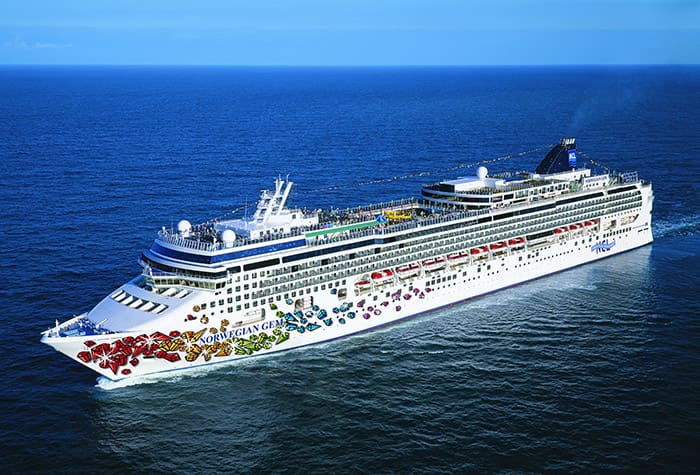
Let’s get cruising! Check out our variety of itineraries.
- Need help? 1-888-751-7804 1-888-751-7804
- Let Us Call You CALL ME
- Drink Packages
- Flights by Celebrity℠
- Hotels by Celebrity
- Manage Reservation
- Shore Excursions
- Upgrade with MoveUp
- My Tier and Points
- Join Captain's Club
Already booked? Sign in or create an account
- South Korea
- New Zealand
- Grand Cayman
- St. Maarten
- U.S Virgin Islands
- New England & Canada
- Pacific Coast
- Antarctic Ocean
- Panama Canal
- Transatlantic
- Transpacific
- Cruise Ports (+300)
- Mediterranean
- Perfect Day at CocoCay
- All Inclusive
- Bucket List Cruises
- Cruise & Land Package
- Groups & Events
- New Cruises
- Popular Cruises
- Specialty Cruises
- Destination Highlights
- Group Excursions
- Private Journeys
- Shore Excursions Overview
- Small Group Discoveries
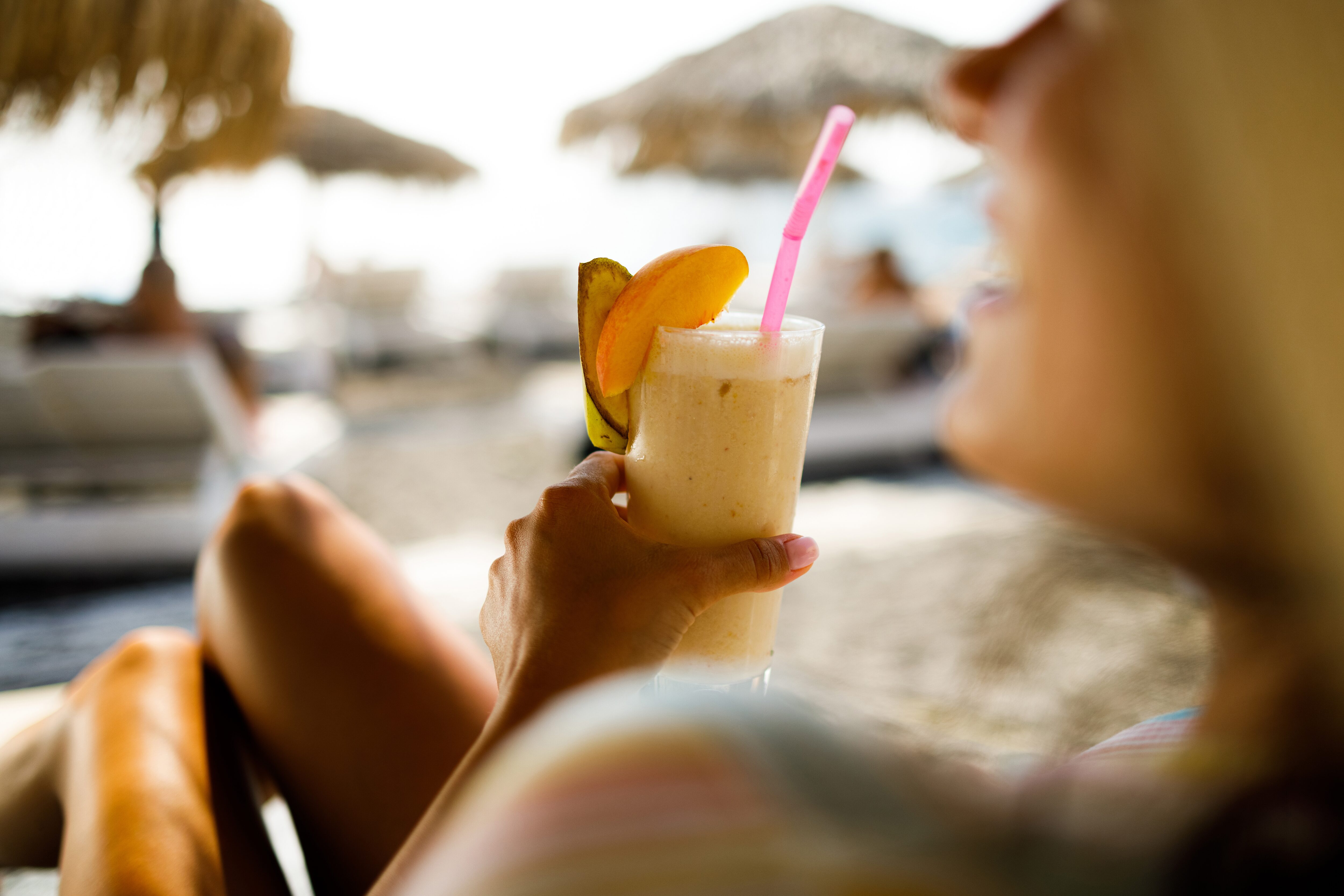
- 360° Virtual Tours
- Celebrity Apex®
- Celebrity Ascent℠ NEW
- Celebrity Beyond℠
- Celebrity Constellation®
- Celebrity Edge®
- Celebrity Eclipse®
- Celebrity Equinox®
- Celebrity Infinity®
- Celebrity Millennium®
- Celebrity Reflection®
- Celebrity Silhouette®
- Celebrity Solstice®
- Celebrity Summit®
- Celebrity Xcel℠ COMING SOON
- Explore Edge Series
Galapagos Expedition Series
- Celebrity Flora®
- Celebrity Xpedition®
- Celebrity Xploration®
- The Retreat
- All Suites. All Included
- Iconic Suite
- Penthouse Suite
- Reflection Suite
- Royal Suite
- Signature Suite
- Celebrity Suite
- Aqua Sky Suite
- Horizon Suite
- Sunset Suite
- Concierge Class
- Galapagos Accommodations
- Eat & Drink
- Entertainment
- Spa & Wellness
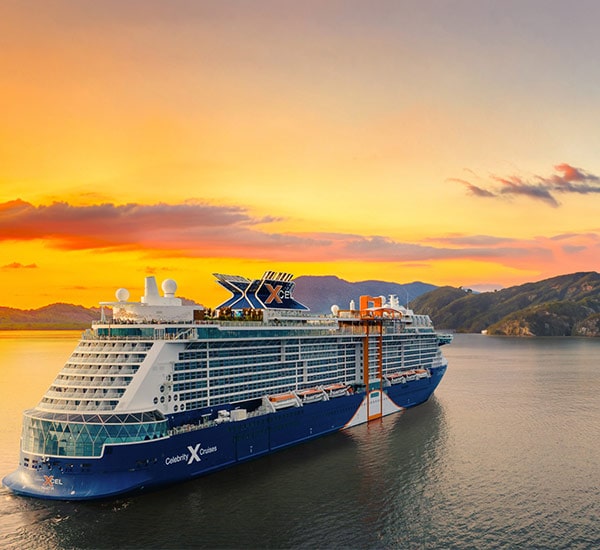
- Cruising 101
- Cruise Fare Options
- Cruise Tips
- First Time on a Cruise
- What is Included on a Cruise
- Future Cruise Vacations
- Accessible Cruising
- Captain's Club Rewards
- Cruise Insurance
- Flights by Celebrity
Healthy at Sea
- Manage Cruise
- The Celebrity Store
- Travel Documents
- Royal Caribbean International
- Celebrity Cruises
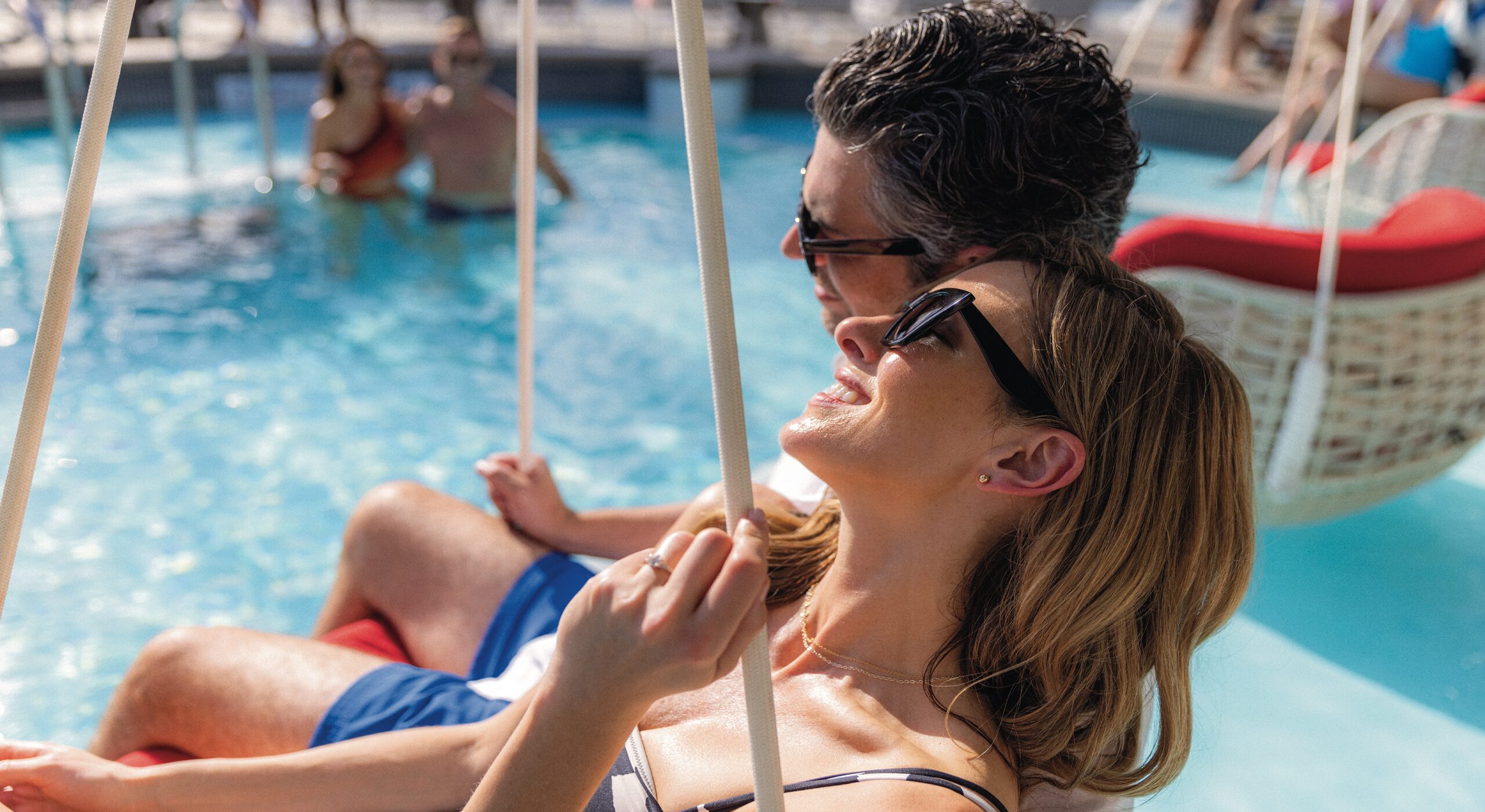
- 75% Off 2nd Guest + Bonus Savings
- 3rd and 4th Guests Sail Free
- Galapagos 20% Savings + Free Flights
- Resident Rates
- Exciting Deals
- View All Offers
- All Included
- Cruise & Land Packages
- Dining Packages
- Photo Packages
- Wi-Fi Packages
- View All Packages
- Captain's Club Overview
- Join the Club
- Loyalty Exclusive Offers
- Tiers & Benefits
- Celebrity Cruises Visa Signature® Card

Enjoy 75% off your second guest’s cruise fare and get bonus savings of up to $150 on the stateroom you want. Plus, additional guests in your stateroom sail free on select sailings.
- Frequently Asked Questions
HEALTHY AT SEA
Creating the best cruise experience possible means prioritizing the well-being of our guests, crew, and the communities we visit. With the guidance of health officials around the globe and the counsel of our dedicated shoreside and shipboard medical teams, we continually update our health and safety protocols to align with global best practices.
If you’re currently booked on a cruise vacation with us and have provided an email address, you will be advised of the latest health and safety guidance leading up to departure. Be sure to update your guest account so that we may reach you.
While On Board
Our enhanced cleaning methods, sanitization protocols, and onboard medical center set a new industry standard for cruising healthy and safety. If you’d like to request additional personal protective equipment onboard while onboard, it’s available to you at guest services.
100% Fresh, Filtered Air
HVAC system continuously supplies and filters 100% fresh, filtered air to all spaces. You can breathe easy knowing the robust system’s layers of protection make the transmission of aerosol particles between spaces extremely low to virtually impossible.
24/7 Medical Care
Our high-quality onboard medical care offers state-of-the-art equipment and more doctors and nurses on each ship than ever before. In the event of a possible public health event onboard, we're fully prepared with medical evaluations, rapid testing, and critical care on each ship.
While Ashore
To minimize potential health risks to our guests, our crew members, and the communities we visit, we meet with local officials, health authorities, and tour operators in each destination continually.
When you travel with us, we've got you covered
CruiseCare ®
Available for US residents:
- Cancellation Coverage, Cruise Interruption + All Medical and Luggage Protection
- 90% Future Cruise Credit for any reason
- 100% Refund for covered reason
- Medical Coverage for all related issues Accidental – Sickness – Emergency
- Reimburse for medical expenses/emergency transportation; trip interruption coverage up to 150%
Still Need Help?
- Search Please fill out this field.
- Manage Your Subscription
- Give a Gift Subscription
- Sweepstakes
Every Cruise Line's Requirements for COVID Vaccines, Testing
A guide to every major cruise line's health requirements for safe sailing.
:max_bytes(150000):strip_icc():format(webp)/alison-fox-author-pic-15f25761041b477aaf424ceca6618580.jpg)
Cruise lines have shifted their requirements for passengers, making cruising accessible to practically everyone. Many popular cruise lines have eliminated the vaccine and pre-embarkation test as the industry is beginning to shift away from mandatory vaccines and testing.
The changes began shortly after the CDC ended a pandemic-era policy of publicly displaying COVID-19 cases onboard, different cruise lines to the public in July 2022. For those looking to check current COVID-19 trends onboard the CDC urges direct contact with the cruise line, and the organization will continue to monitor and offer guidelines to ships.
Below, we break down each line's list of regulations to sail as well as what travelers need to know to plan.
American Queen Voyages
Where they sail:
American Queen Voyages is known for its Mississippi River cruises as well as sailings down other U.S. rivers like the Columbia and Snake rivers, using classic paddle wheeler ships for a throwback, romantic vibe.
Who needs the vaccine: All guests and crew must be fully vaccinated (14 days after their final shot).
What other safety measures are in place: Luggage is then disinfected before being brought onto the ship and staterooms cleaned with electrostatic fogging.
Find out more : American Queen Voyages
Avalon Waterways
Where they sail: These small-ship river cruises sail throughout Europe, Asia, South America, and down the Nile River in Egypt.
Who needs the vaccine: All international travelers from the U.S. must be fully vaccinated before boarding. Beginning March 2023 the vaccine is no longer required (but strongly encouraged).
What other safety measures are in place: All guests will undergo a health screening upon arrival and luggage will be disinfected. Avalon will provide COVID-19 testing for travelers who need to show proof of a negative test to return home at no extra cost. Depending on the location of the cruise a pre-departure COVID-19 test may or may not be required.
Find out more: Avalon Waterways
Where they sail : Azamara sails mid-size ships all over the world, to all seven continents.
Who needs the vaccine : All guests and crew 12 and older will be required to be fully vaccinated at least two weeks before boarding a ship. Beginning Dec. 1, 2022, the company plans to drop the vaccine requirement for departures from the U.S. and Europe.
What other safety measures are in place : Depending on the port of embarkation guests may or may not to pre-test to travel. For a full list of ports and whether they require a test guests can check online .
Azamara's ships have been upgraded with new HVAC filtration systems, and EPA-certified disinfectants are used to clean the ship.
Find out more : Azamara
Carnival Cruises
Where they sail: Carnival sails large ships around the world, including popular trips to the Caribbean. The company sailed its maiden voyage on the Mardi Gras out of Florida in July.
Who needs the vaccine: All guests are encouraged to be vaccinated but unvaccinated travelers, or vaccinated guests without proof of vaccination, will have to present the negative results of a PCR or antigen test taken no earlier than 3 days before sailing.
What other safety measures are in place: For cruises five days or less, there will no longer be pre-cruise testing for vaccinated passengers unless a specific port requires it. Itineraries including Bahamas, Bermuda, or Grand Cayman will still be required to test. All guests will also be required to fill out a health screening 72 hours before embarkation and undergo health screenings prior to boarding. Unvaccinated travelers on a cruise to Bermuda will be required to purchase travel insurance (children under 12 are exempt as long as they are traveling with vaccinated parents).
Both vaccinated and unvaccinated guests who have recovered from COVID-19 within three months of their sailing date, do not need the required pre-cruise COVID test before embarkation, only if they are at least 10 days past their COVID-19 infection, have no symptoms and present documentation of recovery from COVID-19 from their healthcare provider.
Find out more: Carnival Cruise Line
Celebrity Cruises
Where they sail: Celebrity Cruises sails all over the world.
Who needs the vaccine: The vaccine is no longer required to sail on cruises from the U.S. and Europe. A vaccine is required for sailings visiting Canada.
What other safety measures are in place: A pre-embarkation test is no longer required for vaccinated guests on sailings nine days or less. Unvaccinated passengers will still be required to test three days prior to sailing. Self-tests are acceptable from European and U.S. ports that don't stop in Bermuda or Canada.
Find out more : Celebrity Cruises
Where they sail: Cunard, which sails all over the world, is known for its transatlantic journeys aboard the Queen Mary 2.
Who needs the vaccine: All guests 18 and older must be fully vaccinated. Unvaccinated passengers under 18 will be required to undergo a PCR test within 72 hours of their departure.
What other safety measures are in place: Cunard has "enhanced" their onboard ventilation systems and implemented mandatory mask-wearing policies indoors. All guests aged 4 and older are required to have a negative COVID-19 test before boarding. Crew will be tested regularly while on board. Guests who have certain pre-existing medical conditions, including those who are on supplementary oxygen, will not be allowed to board.
Find out more: Cunard
Disney Cruise Line
Where they sail: Disney sails family-friendly journeys including to the Caribbean, Europe, and Alaska.
Who needs the vaccine: Vaccination is no longer required by highly suggested.
What other safety measures are in place: Unvaccinated guests must provide results of a COVID-19 test taken 1 to 2 days before sail date, at home tests are not accepted. The Cruise line also has a full list of enhanced cleaning protocols.
Find out more: Disney Cruise Line
Grand Circle Cruise Line
Where they sail: Grand Circle Cruise Line sails small ships and river cruises all over the world, including an extensive list of European itineraries. The company plans to start sailing again in August, including to Greece, Turkey, and Italy.
Who needs the vaccine: All guests and crew are required to be fully vaccinated with the booster shot.
What other safety measures are in place: All ships have been equipped with High Efficiency Particular Air (HEPA) filters and buffets have been eliminated. The cruise line states some itineraries will require proof of a negative COVID-19 test prior to travel , and that instructors will be sent out 30 days prior to travel.
Find out mor e: Grand Circle Cruise Line
Holland America
Where they sail: Holland America sails large ships all over the world, including to the Mediterranean, Caribbean, Europe, and more.
Who needs the vaccine: Unvaccinated guests are welcome but will be required to self-test three days before cruising.
What other safety measures are in place: Vaccinated passengers traveling on ships for less than 16 days excluding itineraries with the Panama Canal, trans-ocean, and other selected itineraries will no longer be required to test.
Find out more: Holland America
Lindblad Expeditions
Where they sail: Lindblad Expeditions is known for its adventurous trips to hard-to-reach destinations like Antarctica and the Russian Far East, partnering with National Geographic to add to the experience.
Who needs the vaccine: All guests 12 and older need to be vaccinated before boarding. Boosters are recommended but not required.
What other safety measures are in place: Pre-departure testing will not be required unless for a specific destination.
Find out more : Lindblad Expeditions
Margaritaville at Sea
Where they sail: Margaritaville at Sea offers 3-day cruises to Grand Bahama Island departing from the port of Palm Beach. The cruise line also offers the opportunity to take the ship one way to the Bahamas to allow guests to stay at the Margaritaville resort, and then take the ship back to the Bahamas at a later date.
Who needs the vaccine: All guests are welcome regardless of vaccination status, according to the cruise line.
What other safety measures are in place: All crew members must be vaccinated for COVID-19 and the cruise line states there are vaccination requirements on board (but does not specify).
Find out more: Margaritaville at Sea
MSC Cruises
Where they sail: MSC Cruises sails large ocean cruises around the world, including throughout Europe, South America, the Persian Gulf, and the Caribbean. In August, the company started sailing to the Bahamas with a stop at its private island, Ocean Cay.
Who needs the vaccine: Vaccinations are recommended but no longer required.
What other safety measures are in place: Fully-vaccinated passengers are no longer required to show proof of a negative test unless it is required of the destination. Unvaccinated children must show proof of a negative PCR test.
Find out more: MSC Cruises
Norwegian Cruise Line
Where they sail: Norwegian sails big ocean cruises all around the world, including popular itineraries all throughout the Caribbean and Greece.
Who needs the vaccine: All passengers may sail regardless of vaccination status.
What other safety measures are in place: Testing is no longer required for any passenger regardless of vaccination status with the exception of local government mandates.
Find out more : Norwegian Cruise Line
Oceania Cruises
Where they sail: Oceania Cruises sails all over the world, including offering several World Cruise itineraries.
Who needs the vaccine: All passengers regardless of vaccination status are allowed to sail.
What other safety measures are in place: Only unvaccinated guests will be required to show proof of a negative PCR or antigen test taken 72 hours prior to boarding. Unvaccinated children aged 12 years and younger are exempt.
Find out more : Oceania Cruises
P&O Cruises
Where they sail: The UK-based cruise line sails around Europe, including to the Canary Islands, as well as to the Caribbean from Southampton in the UK.
Who needs the vaccine: Although P&O Cruises' policy states that passengers over the age of 15 are required to be vaccinated, the latest update on its website says guests will be contacted directly in regards to vaccination protocol.
What other safety measures are in place: All guests are required to undergo a COVID-19 test at the terminal. Masks will be required on board indoors, and all shore excursions will be with vetted operators.
Find out more : P&O Cruises
Princess Cruises
Where they sail: The global cruise line sails large ocean ships all around the world, from Australia to Alaska.
Who needs the vaccine: All guests are welcome on board, but unvaccinated passengers will be required to test and may need an additional medical exemption at some ports.
Find out more : Princess Cruises
Regent Seven Seas Cruises
Where they sail: Regent Seven Seas offers all-inclusive luxury cruises around the globe, which include perks like free airfare, free excursions, and complimentary unlimited drinks on board.
Who needs the vaccine: All guests are now welcome. Unvaccinated passengers will be required to test 3-days before embarkation.
What other safety measures are in place: Pre-departure testing may not be necessary depending on the port. Currently cruises leaving from Bermuda, Canada, and Greece will require a test.
Find out more : Regent Seven Seas Cruises
Royal Caribbean International
Where they sail: Royal Caribbean sails large ocean ships all over the world, including many popular itineraries throughout the Caribbean and Asia.
Who needs the vaccine: Everyone is welcome regardless of vaccination status, passengers traveling to Bermuda or Canada are required to be vaccinated.
W hat other safety measures are in place: Vaccinated travelers will no longer need a negative test on sailings shorter than 10 nights. Unvaccinated travelers aged 5 and older will need to take a test within 3 days of boarding. Self-administered tests are accepted.
Find out more : Royal Caribbean International
Where they sail: The British cruise line, exclusively for guests 50 and older, sails both ocean and river cruises around the globe.
Who needs the vaccine: All guests must be fully vaccinated, including a booster shot at least 14 days before boarding a ship. Saga was the first major cruise line to implement this vaccination policy.
What other safety measures are in place: Ocean Cruise guests will be required to get tested for COVID-19 in the terminal. Masks are required on bus transfers, in hotels, and on excursions.
Find out more : Saga
Where they sail: Seabourn's mid-size luxury cruises head all around the world, from Alaska to the Caribbean.
Who needs the vaccine: Vaccinations are not required on most cruise itineraries, unvaccinated guests will be required to present a negative test taken within three days of embarkation.
What other safety measures are in place: Masks are recommended onboard in most indoor venues and the casinos are frequently sanitized.
Find out more : Seabourn
Where they sail: Silversea brings guests all around the world in luxury and style , including to the Galapagos and Antarctica .
Who needs the vaccine: All guests are welcome, however, unvaccinated guests may not be welcome on all sailings depending on local regulations.
What other safety measures are in place: Vaccinated guests do not need a pre-departure test unless local regulations such as cruises leaving from Australia, Bermuda, Canada, or Greece require it. Unvaccinated travelers will need a negative COVID-19 test within 72 hours of embarkation.
Find out more : Silversea
UnCruise Adventures
Where they sail: This small-ship company is known for its Alaska journeys as well as adventures in places like the Galapagos and island hopping in Hawaii.
Who needs the vaccine: All guests 12 and older must be fully vaccinated at least 14 days before boarding. At least one booster is required to sail.
What other safety measures are in place: Guests are not required, but requested to test before departing from home (this policy is subject to change as COVID-19 trends change,) as the company states passengers should test to "be a good citizen". Each ship can perform rapid molecular tests on board. The cruise states they will not visit any destinations where vaccine rates are low.
Masks are required in public spaces, according to the company "bandana" and "buff" face masks will not be accepted.
Find out more : UnCruise Adventures
Victory Cruise Lines
Where they sail: Victory Cruise Lines is known for its Great Lakes cruises, providing all-inclusive sailings to see breathtaking sights from Niagara Falls to the iconic architecture of Chicago from Lake Michigan. Beyond the U.S., Victory Cruise Lines sails to Mexico's Yucatán Peninsula.
Who needs the vaccine: All guests and crew will be required to be vaccinated before boarding, and will be required to show physical proof prior to boarding.
What other safety measures are in place: Testing is no longer required on any river cruise.
Luggage is then disinfected before being brought onto the ship and staterooms cleaned with electrostatic fogging. Masks will be required during the embarkation process and while riding a shore excursion bus, but will not be required on board.
Find out more : Victory Cruise Lines
Viking Cruises
Where they sail: Viking sails ocean and river cruises all over the world, including throughout Europe. This summer, Viking will sail several voyages, including around England for UK residents, to Bermuda, and to Iceland in June.
Who needs the vaccine: All guests must be fully vaccinated to board a ship. Guests who are eligible must have a booster.
What other safety measures are in place: In addition to vaccines, all guests may be required to undergo a saliva PCR test at embarkation as well as "frequent" testing throughout the journey. All staterooms are equipped with independent air handling units.
Find out more : Viking Cruises
Virgin Voyages
Where they sail: The brand-new cruise line is launching mini sailings from England for UK residents, and has cruises throughout the Caribbean, and transatlantic options.
Who needs the vaccine: All are welcome regardless of vaccination status, unvaccinated passengers must have a negative COVID-19 test taken within 72 hours of embarkation.
What other safety measures are in place: Virgin Voyages was the first cruise line to eliminate pre-departure testing for vaccinated guests. The cruise line will continue to work with an advisory board to help ensure health and safety on board at all times, including the use of air filtration systems and sanitization of high touch surface areas.
Find out more : Virgin Voyages
Windstar Cruises
Where they sail: Windstar operates small-ship cruises and several sailing vessels all around the globe, including to places like Central America .
Who needs the vaccine: All guests will be required to be fully vaccinated at least 14 days before boarding one of Windstar's yachts. Boosters are highly encouraged and are recommended to be administered at least one week prior to travel.
What other safety measures are in place: Guests no longer need a pre-embarkation test unless a specific destination requires it.
Find out more : Windstar Cruises
Alison Fox is a contributing writer for Travel + Leisure. When she's not in New York City, she likes to spend her time at the beach or exploring new destinations and hopes to visit every country in the world. Follow her adventures on Instagram .
- Skip to main content
- Keyboard shortcuts for audio player
People are vacationing again on cruise ships following a COVID-19 decline
People are cruising again on big ships following a COVID-19 decline, but it's a tough comeback for the industry.
AILSA CHANG, HOST:
Cruise ships are making a comeback. South Florida's cruise companies are buoyed by a surge in passengers, but they're still paying for the pandemic interrupting their business. From member station WLRN in Miami, Tom Hudson reports.
TOM HUDSON, BYLINE: This is what PortMiami's Terminal B sounded like in May of 2021. It was a beautiful day to cruise. The sun was shining. It was in the mid-80s with a slight breeze. Two ships sat dockside, but there were no crew members, no stevedores, no passengers. The cruise business was still closed because of COVID-19.
(CROSSTALK)
HUDSON: And here's what PortMiami sounded like a couple of weeks ago as thousands of passengers lined up to board the Disney Magic for a five-day cruise. The cruise business has come, well, cruising back, stronger than it was before the COVID-19 virus shut down sailing, costing tens of thousands of jobs and billions of dollars.
(SOUNDBITE OF ARCHIVED RECORDING)
JASON LIBERTY: I'm thrilled to share with you this morning our strong second-quarter results and another step change in the trajectory of our business.
HUDSON: That's Jason Liberty, the CEO of Royal Caribbean Group, based in Miami. He was speaking on a conference call after the company released its second-quarter financial results last month.
LIBERTY: We not only delivered another outstanding quarter that significantly exceeded expectations but are also increasing our full-year earnings guidance by another 33%.
HUDSON: The cruise operator expects this year's profits to be stronger than it predicted just a few months ago. And it's not alone in riding this wave of passenger demand.
JOSH WEINSTEIN: There was much to celebrate in the second quarter.
HUDSON: This is Josh Weinstein, the CEO of Carnival Corporation, based in Doral, Fla.
WEINSTEIN: We just hit all-time highs for bookings and customer deposits. And remarkably, we are still experiencing a phenomenal wave season which started early, gained strength and is still going strong midway through the year.
HUDSON: And it was a similar message from Harry Sommer, the CEO of Norwegian Cruise Line Holdings in Miami, though the company's forecast was less than anticipated.
HARRY SOMMER: We achieved record revenue of 2.2 billion in the second quarter, an increase of 33% over the same period in 2019.
JAIME KATZ: I think that these companies have really been able to figure out how to run in a much more efficient way.
HUDSON: This is Jaime Katz. She's a stock analyst at Morningstar.
KATZ: This time off has really given these management teams a way to think about, how do we optimize revenue management? And I think that has permitted these companies to come back with really diplomatic pricing tactics.
HUDSON: Diplomatic pricing. Instead of simply offering deep discounts to fill up the ships, package together amenities.
(SOUNDBITE OF AD)
QUEEN: (Singing) Oh, how I want to be free.
HUDSON: This allows the cruise ships to add or subtract items based on demand. The more people buying, the fewer amenities included in the base price.
QUEEN: (Singing) I want to break free.
UNIDENTIFIED NARRATOR: And so much more.
HUDSON: Strong demand has allowed the companies to keep prices up. And they need the cash. This trio of South Florida-based cruise giants have lost tens of billions of dollars combined since the beginning of the pandemic. All three were profitable in the second quarter if you don't count the hundreds of millions of dollars they spent paying interest on loans. But they have to pay that interest, and it takes a big bite out of profits. Those loans kept the companies afloat when they weren't allowed to sail. Together, these three big cruise companies owe almost $70 billion to lenders.
PETER TROMBETTA: It's still massive. It's still, you know, much higher than it was pre-pandemic.
HUDSON: Pete Trombetta is a senior analyst with Moody's, the credit rating agency. The companies have spent more paying interest on those loans this year than they have spent paying for fuel for their ships.
TROMBETTA: They had to borrow to stay alive. So it's going to take time for them to start tackling that debt. But they're definitely on the right path.
HUDSON: This big rebound of cruising is big for South Florida, with two of the top three busiest cruise ports in the world. Already this year, the number of passengers moving through Port Everglades is up 77% compared to a year ago. The Fort Lauderdale port has been renovating a terminal that will be dedicated to Disney in time for the winter cruise season later this year. And this comes after renovating a separate terminal earlier this year for Royal Caribbean's Celebrity brand, says director Jonathan Daniels.
JONATHAN DANIELS: We're actually hiring additional people. We're creating our own cruise operations department, which the port has never had.
HUDSON: More passengers mean more revenue for Miami-Dade and Broward counties in Florida, the owners of the ports. Cruise passenger revenue in Miami fell 95% when ships were ordered to stop sailing. It already tops $100 million this fiscal year, on par with 2019, the year before the pandemic put a stop to cruises.
(SOUNDBITE OF TV SHOW, "CBS EVENING NEWS WITH NORAH O'DONNELL")
NORAH O'DONNELL: Now to a developing story in South Florida, where two cruise ships carrying passengers with coronavirus have been allowed to dock. For some on board...
CARLOS SUAREZ: Another cruise ship with COVID-positive passengers has docked at PortMiami.
HUDSON: Some of the early COVID cases and headlines came from cruise ships.
UNIDENTIFIED REPORTER #1: After weeks in limbo at sea, overnight, two Holland-American cruise ships...
HUDSON: Some ships were quarantined and not allowed to dock for days over fears of passengers spreading the virus on shore.
UNIDENTIFIED REPORTER #2: The Coast Guard is currently monitoring more than 50,000 crew members on various ships that are in U.S. waters.
HUDSON: Thousands of crew members remained on board other ships for sometimes months after the industry was ordered to suspend operations. It added up to plenty of negative publicity at the time, but it has not hurt the optimism now from the industry's CEOs.
(SOUNDBITE OF MONTAGE)
WEINSTEIN: We are clearly gaining momentum on an upward trajectory.
LIBERTY: Clearly, the very healthy demand environment we are seeing is quite encouraging.
SOMMER: This acceleration in demand, the record booking levels really are increasing our optimism about 2024.
HUDSON: In order for that optimism to be realized, the industry needs to continue attracting first-time cruisers and converting them into repeat customers. Worldwide, one out of every three cruise passengers are at least 60 years old. But the average age for passengers sailing in the Caribbean, where ships from South Florida travel, is in the mid-40s. Joe Cilli is an assistant dean at Florida International University and creator of the school's cruise line operations management degree.
JOE CILLI: You're starting to see somewhat of a trend of, let's lure a younger demographic here. And that's not related to the family cruises with all of the, you know, waterslides and go-karts and things like that on it.
HUDSON: Shareholders certainly are optimistic about the fortunes of the firms. Norwegian stock was up almost 80% in the first half of the year. Carnival and Royal Caribbean shares more than doubled in price during that same time period. In fact, Royal Caribbean stock has almost returned to its pre-pandemic price. For NPR News, I'm Tom Hudson in Miami.
(SOUNDBITE OF CHILDISH GAMBINO SONG, "REDBONE")
Copyright © 2023 NPR. All rights reserved. Visit our website terms of use and permissions pages at www.npr.org for further information.
NPR transcripts are created on a rush deadline by an NPR contractor. This text may not be in its final form and may be updated or revised in the future. Accuracy and availability may vary. The authoritative record of NPR’s programming is the audio record.
Public Health Responses to COVID-19 Outbreaks on Cruise Ships — Worldwide, February–March 2020
Weekly / March 27, 2020 / 69(12);347-352
On March 23, 2020, this report was posted online as an MMWR Early Release.
Please note: This report has been corrected .
Leah F. Moriarty, MPH 1 ; Mateusz M. Plucinski, PhD 1 ; Barbara J. Marston, MD 1 ; Ekaterina V. Kurbatova, MD, PhD 1 ; Barbara Knust, DVM 1 ; Erin L. Murray, PhD 2 ; Nicki Pesik, MD 1 ; Dale Rose, PhD 1 ; David Fitter, MD 1 ; Miwako Kobayashi, MD, PhD 1 ; Mitsuru Toda, PhD 1 ; start highlight Paul T. Cantey, MD 1 ; end highlight Tara Scheuer, MPH 3 ; Eric S. Halsey, MD 1 ; Nicole J. Cohen, MD 1 ; Lauren Stockman, MPH 2 ; Debra A. Wadford, PhD 2 ; Alexandra M. Medley, DVM 1 ,4 ; Gary Green, MD 5 ; Joanna J. Regan, MD 1 ; Kara Tardivel, MD 1 ; Stefanie White, MPH 1 ; start highlight Clive Brown, MD 1 ; end highlight Christina Morales, PhD 2 ; Cynthia Yen, MPH 2 ; Beth Wittry, MPH 1 ; Amy Freeland, PhD 1 ; Sara Naramore, MPH 3 ; Ryan T. Novak, PhD 1 ; David Daigle, MPH 1 ; Michelle Weinberg, MD 1 ; Anna Acosta, MD 1 ; Carolyn Herzig, PhD 1 ; Bryan K Kapella, MD 1 ; Kathleen R. Jacobson, MD 2 ; Katherine Lamba, MPH 2 ; Atsuyoshi Ishizumi, MPH, MSc 1 ; John Sarisky, MPH 1 ; Erik Svendsen, PhD 1 ; Tricia Blocher, MS 2 ; Christine Wu, MD 3 ; Julia Charles, JD 1 ; Riley Wagner, MPH 1 ; Andrea Stewart, PhD 1 ; Paul S. Mead, MD 1 ; Elizabeth Kurylo, MCM 1 ; Stefanie Campbell, DVM 1 ; Rachel Murray, MPH 1 ; Paul Weidle, PharmD 1 ; Martin Cetron, MD 1 ; Cindy R. Friedman, MD 1 ; CDC Cruise Ship Response Team; California Department of Public Health COVID-19 Team; Solano County COVID-19 Team ( View author affiliations )
What is already known about this topic?
Cruise ships are often settings for outbreaks of infectious diseases because of their closed environment and contact between travelers from many countries.
What is added by this report?
More than 800 cases of laboratory-confirmed COVID-19 cases occurred during outbreaks on three cruise ship voyages, and cases linked to several additional cruises have been reported across the United States. Transmission occurred across multiple voyages from ship to ship by crew members; both crew members and passengers were affected; 10 deaths associated with cruise ships have been reported to date.
What are the implications for public health practice?
Outbreaks of COVID-19 on cruise ships pose a risk for rapid spread of disease beyond the voyage. Aggressive efforts are required to contain spread. All persons should defer all cruise travel worldwide during the COVID-19 pandemic.
Views: Views equals page views plus PDF downloads
- PDF pdf icon [186K]
An estimated 30 million passengers are transported on 272 cruise ships worldwide each year* ( 1 ). Cruise ships bring diverse populations into proximity for many days, facilitating transmission of respiratory illness ( 2 ). SARS-CoV-2, the virus that causes coronavirus disease (COVID-19) was first identified in Wuhan, China, in December 2019 and has since spread worldwide to at least 187 countries and territories. Widespread COVID-19 transmission on cruise ships has been reported as well ( 3 ). Passengers on certain cruise ship voyages might be aged ≥65 years, which places them at greater risk for severe consequences of SARS-CoV-2 infection ( 4 ). During February–March 2020, COVID-19 outbreaks associated with three cruise ship voyages have caused more than 800 laboratory-confirmed cases among passengers and crew, including 10 deaths. Transmission occurred across multiple voyages of several ships. This report describes public health responses to COVID-19 outbreaks on these ships. COVID-19 on cruise ships poses a risk for rapid spread of disease, causing outbreaks in a vulnerable population, and aggressive efforts are required to contain spread. All persons should defer all cruise travel worldwide during the COVID-19 pandemic.
During February 7–23, 2020, the largest cluster of COVID-19 cases outside mainland China occurred on the Diamond Princess cruise ship, which was quarantined in the port of Yokohama, Japan, on February 3 ( 3 ). On March 6, cases of COVID-19 were identified in persons on the Grand Princess cruise ship off the coast of California; that ship was subsequently quarantined. By March 17, confirmed cases of COVID-19 had been associated with at least 25 additional cruise ship voyages. On February 21, CDC recommended avoiding travel on cruise ships in Southeast Asia; on March 8, this recommendation was broadened to include deferring all cruise ship travel worldwide for those with underlying health conditions and for persons aged ≥65 years. On March 13, the Cruise Lines International Association announced a 30-day voluntary suspension of cruise operations in the United States ( 5 ). CDC issued a level 3 travel warning on March 17, recommending that all cruise travel be deferred worldwide. †
Diamond Princess
On January 20, 2020, the Diamond Princess cruise ship departed Yokohama, Japan, carrying approximately 3,700 passengers and crew ( Table ). On January 25, a symptomatic passenger departed the ship in Hong Kong, where he was evaluated; testing confirmed SARS-CoV-2 infection. On February 3, the ship returned to Japan, after making six stops in three countries. Japanese authorities were notified of the COVID-19 diagnosis in the passenger who disembarked in Hong Kong, and the ship was quarantined. Information about social distancing and monitoring of symptoms was communicated to passengers. On February 5, passengers were quarantined in their cabins; crew continued to work and, therefore, could not be isolated in their cabins ( 6 ). Initially, travelers with fever or respiratory symptoms and their close contacts were tested for SARS-CoV-2 by reverse transcription–polymerase chain reaction (RT-PCR). All those with positive test results were disembarked and hospitalized. Testing was later expanded to support a phased disembarkation of passengers, prioritizing testing of older persons, those with underlying medical conditions, and those in internal cabins with no access to the outdoors. During February 16–23, nearly 1,000 persons were repatriated by air to their home countries, including 329 persons who returned to the United States and entered quarantine or isolation. § , ¶
The remaining passengers who had negative SARS-CoV-2 RT-PCR test results,** no respiratory symptoms, and no close contact with a person with a confirmed case of COVID-19 completed a 14-day ship-based quarantine before disembarkation. Those passengers who had close contact with a person with a confirmed case completed land-based quarantine, with duration determined by date of last contact. After disembarkation of all passengers, crew members either completed a 14-day ship-based quarantine, were repatriated to and managed in their home country, or completed a 14-day land-based quarantine in Japan.
Overall, 111 (25.9%) of 428 U.S. citizens and legal residents did not join repatriation flights either because they had been hospitalized in Japan or for other reasons. To mitigate SARS-CoV-2 importation into the United States, CDC used temporary “Do Not Board” restrictions ( 7 ) to prevent commercial airline travel to the United States, †† and the U.S. Departments of State and Homeland Security restricted travel to the United States for non-U.S. travelers.
Among 3,711 Diamond Princess passengers and crew, 712 (19.2%) had positive test results for SARS-CoV-2 ( Figure 1 ). Of these, 331 (46.5%) were asymptomatic at the time of testing. Among 381 symptomatic patients, 37 (9.7%) required intensive care, and nine (1.3%) died ( 8 ). Infections also occurred among three Japanese responders, including one nurse, one quarantine officer, and one administrative officer ( 9 ). As of March 13, among 428 U.S. passengers and crew, 107 (25.0%) had positive test results for COVID-19; 11 U.S. passengers remain hospitalized in Japan (median age = 75 years), including seven in serious condition (median age = 76 years).
Grand Princess
During February 11–21, 2020, the Grand Princess cruise ship sailed roundtrip from San Francisco, California, making four stops in Mexico (voyage A). Most of the 1,111 crew and 68 passengers from voyage A remained on board for a second voyage that departed San Francisco on February 21 (voyage B), with a planned return on March 7 (Table). On March 4, a clinician in California reported two patients with COVID-19 symptoms who had traveled on voyage A, one of whom had positive test results for SARS-CoV-2. CDC notified the cruise line, which began cancelling group activities on voyage B. More than 20 additional cases of COVID-19 among persons who did not travel on voyage B have been identified from Grand Princess voyage A, the majority in California. One death has been reported. On March 5, a response team was transported by helicopter to the ship to collect specimens from 45 passengers and crew with respiratory symptoms for SARS-CoV-2 testing; 21 (46.7%), including two passengers and 19 crew, had positive test results. Passengers and symptomatic crew members were asked to self-quarantine in their cabins, and room service replaced public dining until disembarkation. Following docking in Oakland, California, on March 8, passengers and crew were transferred to land-based sites for a 14-day quarantine period or isolation. Persons requiring medical attention for other conditions or for symptoms consistent with COVID-19 were evaluated, tested for SARS-CoV-2 infection, and hospitalized if indicated. During land-based quarantine in the United States, all persons were offered SARS-CoV-2 testing. As of March 21, of 469 persons with available test results, 78 (16.6%) had positive test results for SARS-CoV-2. Repatriation flights for foreign nationals were organized by several governments in coordination with U.S. federal and California state government agencies. Following disinfection of the vessel according to guidance from CDC’s Vessel Sanitation Program, remaining foreign nationals will complete quarantine on board. The quarantine will be managed by the cruise company, with technical assistance provided by public health experts.
On February 21, five crew members from voyage A transferred to three other ships with a combined 13,317 passengers on board. No-sail orders §§ were issued by CDC for these ships until medical logs were reviewed and the crew members tested negative for SARS-CoV-2.
Additional Ships
The Diamond Princess and Grand Princess had more than 800 total COVID-19 cases, including 10 deaths. During February 3–March 13, in the United States, approximately 200 cases of COVID-19 were confirmed among returned cruise travelers from multiple ship voyages, including the Diamond Princess and Grand Princess, accounting for approximately 17% of total reported U.S. cases at the time ( 10 ). Cases linked with cruise travel have been reported to CDC in at least 15 states. Since February, multiple international cruises have been implicated in reports of COVID-19 cases, including at least 60 cases in the United States from Nile River cruises in Egypt ( Figure 2 ). Secondary community-acquired cases linked to returned passengers on cruises have also been reported (CDC, unpublished data, 2020).
Public health responses to COVID-19 outbreaks on cruise ships were aimed at limiting transmission among passengers and crew, preventing exportation of COVID-19 to other communities, and assuring the safety of travelers and responders. These responses required the coordination of stakeholders across multiple sectors, including U.S. Government departments and agencies, foreign ministries of health, foreign embassies, state and local public health departments, hospitals, laboratories, and cruise ship companies. At the time of the Diamond Princess outbreak, it became apparent that passengers disembarking from cruise ships could be a source of community transmission. Therefore, aggressive efforts to contain transmission on board and prevent further transmission upon disembarkation and repatriation were instituted. These efforts included travel restrictions applied to persons, movement restrictions applied to ships, infection prevention and control measures, (e.g., use of personal protective equipment for medical and cleaning staff), disinfection of the cabins of persons with suspected COVID-19, provision of communication materials, notification of state health departments, and investigation of contacts of cases identified among U.S. returned travelers.
Cruise ships are often settings for outbreaks of infectious diseases because of their closed environment, contact between travelers from many countries, and crew transfers between ships. On the Diamond Princess, transmission largely occurred among passengers before quarantine was implemented, whereas crew infections peaked after quarantine ( 6 ). On the Grand Princess, crew members were likely infected on voyage A and then transmitted SARS-CoV-2 to passengers on voyage B. The results of testing of passengers and crew on board the Diamond Princess demonstrated a high proportion (46.5%) of asymptomatic infections at the time of testing. Available statistical models of the Diamond Princess outbreak suggest that 17.9% of infected persons never developed symptoms ( 9 ). A high proportion of asymptomatic infections could partially explain the high attack rate among cruise ship passengers and crew. SARS-CoV-2 RNA was identified on a variety of surfaces in cabins of both symptomatic and asymptomatic infected passengers up to 17 days after cabins were vacated on the Diamond Princess but before disinfection procedures had been conducted (Takuya Yamagishi, National Institute of Infectious Diseases, personal communication, 2020). Although these data cannot be used to determine whether transmission occurred from contaminated surfaces, further study of fomite transmission of SARS-CoV-2 aboard cruise ships is warranted.
During the initial stages of the COVID-19 pandemic, the Diamond Princess was the setting of the largest outbreak outside mainland China. Many other cruise ships have since been implicated in SARS-CoV-2 transmission. Factors that facilitate spread on cruise ships might include mingling of travelers from multiple geographic regions and the closed nature of a cruise ship environment. This is particularly concerning for older passengers, who are at increased risk for serious complications of COVID-19 ( 4 ). The Grand Princess was an example of perpetuation of transmission from crew members across multiple consecutive voyages and the potential introduction of the virus to passengers and crew on other ships. Public health responses to cruise ship outbreaks require extensive resources. Temporary suspension of cruise ship travel during the current phase of the COVID-19 pandemic has been partially implemented by cruise lines through voluntary suspensions of operations, and by CDC through its unprecedented use of travel notices and warnings for conveyances to limit disease transmission ( 5 ).
Acknowledgments
Staff members responding to COVID-19 outbreaks on cruise ships; Japan’s Ministry of Health, Labour and Welfare; California Department of Public Health; cruise ship passengers; Princess Cruises; Christina Armantas, Matthew Bacinskas, Cynthia Bernas, Brandon Brown, Teal Bullick, Lyndsey Chaille, Martin Cilnis, Gail Cooksey, Ydelita Gonzales, Christopher Kilonzo, Chun Kim, Ruth Lopez, Dominick Morales, Chris Preas, Kyle Rizzo, Hilary Rosen, Sarah Rutschmann, Maria Vu, California Department of Public Health, Richmond and Sacramento; Ben Gammon, Ted Selby, Solano County Public Health; Medic Ambulance Service; NorthBay HealthCare; Sutter Solano Medical Center; Kaiser Permanente Vallejo Medical Center; Kaiser Permanente Vacaville Medical Center start highlight ; field teams at repatriation sites; National Institute of Infectious Diseases, Japan end highlight .
CDC Cruise Ship Response Team
Casey Barton Behravesh, CDC; Adam Bjork, CDC; William Bower, CDC; Catherine Bozio, CDC; Zachary Braden, CDC; Mary Catherine Bertulfo, CDC; Kevin Chatham-Stephens, CDC; Victoria Chu, CDC; Barbara Cooper, CDC; Kathleen Dooling, CDC; Christine Dubray, CDC; Emily Curren, CDC; Margaret A. Honein, CDC; Kathryn Ivey, CDC; Jefferson Jones, CDC; Melissa Kadzik, CDC; Nancy Knight, CDC; Mariel Marlow, CDC; Audrey McColloch, CDC; Robert McDonald, CDC; Andrew Klevos, CDC; Sarah Poser, CDC; Robin A. Rinker, CDC; Troy Ritter, CDC; Luis Rodriguez, CDC; Matthew Ryan, CDC; Zachary Schneider, CDC; Caitlin Shockey, CDC; Jill Shugart, CDC; Margaret Silver, CDC; Paul W. Smith, CDC; Farrell Tobolowsky, CDC; Aimee Treffiletti, CDC; Megan Wallace, CDC; Jonathan Yoder, CDC.
California Department of Public Health COVID-19 Team
Pennan Barry, California Department of Public Health; Ricardo Berumen, III, California Department of Public Health; Brooke Bregman, California Department of Public Health; Kevin Campos, California Department of Public Health; Shua Chai, California Department of Public Health; Rosie Glenn-Finer, California Department of Public Health; Hugo Guevara, California Department of Public Health; Jill Hacker, California Department of Public Health; Kristina Hsieh, California Department of Public Health; Mary Kate Morris, California Department of Public Health; Ryan Murphy, California Department of Public Health; Jennifer F. Myers, California Department of Public Health; Tasha Padilla, California Department of Public Health; Chao-Yang Pan, California Department of Public Health; Adam Readhead, California Department of Public Health; Estela Saguar, California Department of Public Health; Maria Salas, California Department of Public Health; Robert E. Snyder, California Department of Public Health; Duc Vugia, California Department of Public Health; James Watt, California Department of Public Health; Cindy Wong, California Department of Public Health.
Solano County COVID-19 Team
Meileen Acosta, Solano County Department of Public Health; Shai Davis, Solano County Department of Public Health; Beatrix Kapuszinsky, Solano County Department of Public Health; Bela Matyas, Solano County Department of Public Health; Glen Miller, Solano County Department of Public Health; Asundep Ntui, Solano County Department of Public Health; Jayleen Richards, Solano County Department of Public Health.
Corresponding author: Leah F. Moriarty, [email protected] , 770-488-7100.
1 CDC COVID-19 Response Team; 2 California Department of Public Health; 3 Solano Public Health, Fairfield, California; 4 Epidemic Intelligence Service, CDC; 5 Sutter Medical Group of the Redwoods, Santa Rosa, California.
All authors have completed and submitted the International Committee of Medical Journal Editors form for disclosure of potential conflicts of interest. No potential conflicts of interest were disclosed.
* Not including river cruises.
† Warning level 3: avoid non-essential travel due to widespread ongoing transmission: https://wwwnc.cdc.gov/travel/notices/warning/novel-coronavirus-china .
§ Quarantine was used for persons who were exposed; isolation was used for persons who had positive test results for SARS-CoV-2.
¶ Movement for one person with resolved COVID-19 was not restricted.
** Based on Japanese testing procedures, which at the time included taking one oropharyngeal swab.
†† Travel restrictions were lifted when persons had either completed a 14-day monitoring period without symptoms or had met clinical criteria for release from isolation. https://japan2.usembassy.gov/pdfs/alert-20200227-diamond-princess.pdf pdf icon external icon .
§§ CDC has the authority to institute a no-sail order to prevent ships from sailing when it is reasonably believed that continuing normal operations might subject newly arriving passengers to disease.
- Cruise Lines International Association. 2019 cruise trends & industry outlook. Washington, DC: Cruise Line International Association; 2019. https://cruising.org/news-and-research/-/media/CLIA/Research/CLIA-2019-State-of-the-Industry.pdf pdf icon external icon
- Millman AJ, Kornylo Duong K, Lafond K, Green NM, Lippold SA, Jhung MA. Influenza outbreaks among passengers and crew on two cruise ships: a recent account of preparedness and response to an ever-present challenge. J Travel Med 2015;22:306–11. CrossRef external icon PubMed external icon
- World Health Organization. Coronavirus disease (COVID-2019) situation reports. Geneva, Switzerland: World Health Organization; 2020. https://www.who.int/emergencies/diseases/novel-coronavirus-2019/situation-reports/ external icon
- CDC COVID-19 Response Team. Severe outcomes among patients with coronavirus disease 2019 (COVID-19)—United States, February 12–March 16, 2020. MMWR Morb Mortal Wkly Rep 2020. Epub March 18, 2020. CrossRef external icon
- Cruise Lines International Association. CLIA announces voluntary suspension in U.S. cruise operations. Washington, DC: Cruise Line International Association; 2020. https://cruising.org:443/news-and-research/press-room/2020/march/clia-covid-19-toolkit external icon
- Kakimoto K, Kamiya H, Yamagishi T, Matsui T, Suzuki M, Wakita T. Initial investigation of transmission of COVID-19 among crew members during quarantine of a cruise ship—Yokohama, Japan, February 2020. MMWR Morb Mortal Wkly Rep 2020;69:312–3. CrossRef external icon PubMed external icon
- Vonnahme LA, Jungerman MR, Gulati RK, Illig P, Alvarado-Ramy F. Federal travel restrictions for persons with higher-risk exposures to communicable diseases of public health concern. Emerg Infect Dis 2017;23:S108–13. CrossRef external icon PubMed external icon
- Ministry of Health, Labour and Welfare. About new coronavirus infections [Japanese]. Tokyo, Japan: Ministry of Health, Labour and Welfare; 2020. https://www.mhlw.go.jp/stf/seisakunitsuite/bunya/0000164708_00001.html external icon
- Mizumoto, K., Kagaya, K., Zarebski, A. and Chowell, G. Estimating the asymptomatic proportion of coronavirus disease 2019 (COVID-19) cases on board the Diamond Princess cruise ship, Yokohama, Japan, 2020. Eurosurveillance 2020;25. CrossRef external icon
- CDC. Coronavirus disease 2019 (COVID-19): cases in U.S. Atlanta, GA: US Department of Health and Human Services, CDC; 2020. https://www.cdc.gov/coronavirus/2019-ncov/cases-in-us.html
Abbreviation: N/A = not applicable.
FIGURE 1 . Cumulative number of confirmed coronavirus disease 2019 (COVID-19) cases* by date of detection — Diamond Princess cruise ship, Yokohama, Japan, February 3–March 16, 2020
Source: World Health Organization (WHO) coronavirus disease (COVID-2019) situation reports. https://www.who.int/emergencies/diseases/novel-coronavirus-2019/situation-reports/ external icon .
* Decline in cumulative number of cases on February 13 and February 25 due to correction by WHO for cases that had been counted twice.
FIGURE 2 . Cruise ships with coronavirus disease 2019 (COVID-19) cases requiring public health responses — worldwide, January–March 2020
Suggested citation for this article: Moriarty LF, Plucinski MM, Marston BJ, et al. Public Health Responses to COVID-19 Outbreaks on Cruise Ships — Worldwide, February–March 2020. MMWR Morb Mortal Wkly Rep 2020;69:347-352. DOI: http://dx.doi.org/10.15585/mmwr.mm6912e3 external icon .
MMWR and Morbidity and Mortality Weekly Report are service marks of the U.S. Department of Health and Human Services. Use of trade names and commercial sources is for identification only and does not imply endorsement by the U.S. Department of Health and Human Services. References to non-CDC sites on the Internet are provided as a service to MMWR readers and do not constitute or imply endorsement of these organizations or their programs by CDC or the U.S. Department of Health and Human Services. CDC is not responsible for the content of pages found at these sites. URL addresses listed in MMWR were current as of the date of publication.
All HTML versions of MMWR articles are generated from final proofs through an automated process. This conversion might result in character translation or format errors in the HTML version. Users are referred to the electronic PDF version ( https://www.cdc.gov/mmwr ) and/or the original MMWR paper copy for printable versions of official text, figures, and tables.
Exit Notification / Disclaimer Policy
- The Centers for Disease Control and Prevention (CDC) cannot attest to the accuracy of a non-federal website.
- Linking to a non-federal website does not constitute an endorsement by CDC or any of its employees of the sponsors or the information and products presented on the website.
- You will be subject to the destination website's privacy policy when you follow the link.
- CDC is not responsible for Section 508 compliance (accessibility) on other federal or private website.

Cruise demand leaves pandemic in rearview with record passengers, more construction on tap
M IAMI BEACH — The COVID pandemic drove the cruise industry to a standstill, but numbers released Tuesday signal the years of comeback are officially over with more expansion on tap.
More than 31.7 million passengers took cruises worldwide in 2023, said Kelly Craighead, Cruise Line International Association president and CEO, speaking at the annual Seatrade Cruise Global conference at Miami Beach Convention Center.
CLIA is the lobbying group for member cruise lines, including Royal Caribbean, Disney Cruise Line, Carnival, Norwegian, MSC and most other major brands.
The pandemic shut down sailing from March 2020 with only a small number of ships coming back online 18 months later in summer 2021. Cruise lines didn’t return to full strength until partially through 2022, so it wasn’t until a full year of sailing in 2023 that the industry could get a real handle on just what the demand had grown to as people returned to vacation travel.
“We are an industry that’s resilient and thriving all around the world, breaking records in ways we might never have imagined,” she said.
The 2023 total is 2 million more than the industry had in 2019. CLIA projects 34.1 million in 2024 growing to 34.6 million in 2025. It’s still a miniscule chunk of the overall travel pie of more than 1.3 billion, but cruise’s share is growing.
She noted that surveys of travelers who would consider a cruise for a vacation are at an all-time high, noting that 82% who had previously cruised said they would cruise again, but more importantly, among those who had never sailed, 71% would consider it.
The youngest generations — Gen X, Millennials and Gen Z — are the biggest drivers.
The fleet for the growing demand continues as well, including the introduction this year of the world’s largest cruise ship, Royal Caribbean’s Icon of the Seas.
She said CLIA member lines had more than 300 ships sailing globally for the first time in 2023, with 14 new ships that began sailing in 2023 and another eight expected before the end of the year. They have 88 new ships on order through 2028.
Already this year, both Royal Caribbean Group and Carnival Corp. announced major new ship construction deals, and Norwegian Cruise Line Holdings added to that this week with its order of eight more vessels across its three brands.
The heads of those groups were on stage to discuss where the industry is headed and enjoy their recent success.
Carnival Corp.’s president and CEO Josh Weinstein put it in a way that gained plaudits from fellow panelists and others at the conference.
“The concept of pent-up demand for cruising is gone,” he said. “We have been cruising for three years, right? It’s over. This is natural demand because we all provide amazing experiences. We delivered happiness to literally 31 million guests last year. And people see it, they feel it.”
A big part of what cruising missed during the pandemic he said was that word-of-mouth promotion that is needed to convince people to try their product.
“We now have 31 million people getting off our ships and going home and telling their friends and family who have never cruised before, ‘You don’t know what you’re missing.’ ‘This is amazing.’”
All of the leaders echoed the industry line that they offer a much better value than land-based vacations, but that the experience gap between the two has now shifted in their favor coming out of the pandemic.
“The appreciation for building memories with your friends and family coming out of COVID is at extraordinarily high levels,” said Jason Liberty, president & CEO at Royal Caribbean Group. “Also wealth transfer, right? Grandparents wanting to see that wealth transfer live, watching their kids and their grandkids experience that is also at an all-time high. … We have the secular trends of people buying less stuff, they want experiences. We’re in the experience business.”
Another bright aspect to the industry has been the spillover effect of all of the new ships since the pandemic, said Harry Sommer, president & CEO at Norwegian Cruise Line Holdings Ltd.
“Their new products are so extraordinary, and so much better than what was delivered back in ’15, ’16 and ’17, that it’s driving additional excitement for the entire industry,” Somer said. “When any new ship is delivered, no matter whether it’s part of our portfolio or the other portfolios, demand improves for all of us because it adds excitement to the industry.”
©2024 Orlando Sentinel. Visit orlandosentinel.com. Distributed by Tribune Content Agency, LLC.
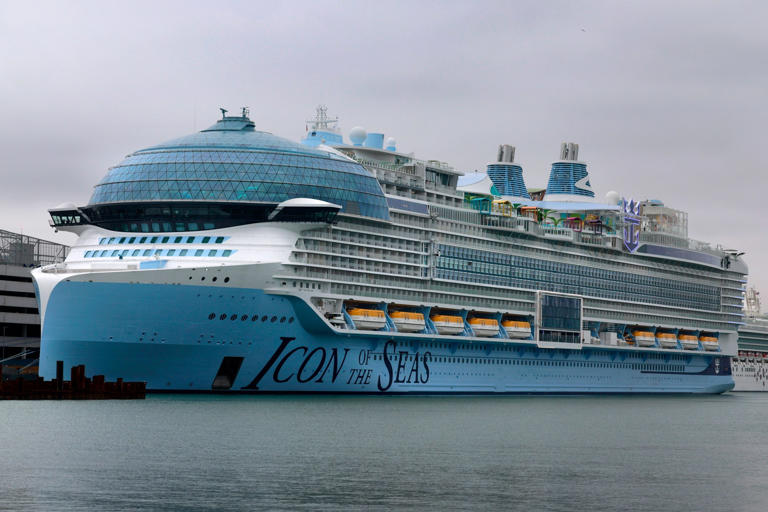
Nearly 30 Silversea cruise passengers get sick in gastrointestinal illness outbreak

More than two dozen Silversea Cruises passengers got sick in a gastrointestinal illness outbreak.
The Centers for Disease Control and Prevention said 28 of Silver Nova’s 633 guests reported being ill during a voyage that began on March 31, along with one of the vessel’s crew members. Their main symptom was diarrhea.
The health agency listed the causative agent as unknown.
Silversea notified guests and crew of the outbreak via announcements and encouraged them to report cases and practice “good hand hygiene,” the CDC said. The line also isolated those who were sick and implemented heightened cleaning and disinfection measures.
"The health and safety of our guests, crew, and the communities we visit are our top priority," Silversea told USA TODAY in an emailed statement. "To maintain an environment that supports the highest levels of health and safety onboard our ships, we implement rigorous cleaning procedures, many of which far exceed public health guidelines." The cruise began in Peru and is set to end in Fort Lauderdale, Florida, on Tuesday, according to CruiseMapper .
The news comes after about 100 Holland America Line passengers got sick in a norovirus outbreak earlier this year.
Cruise ship medical facilities: What happens if you get sick or injured (or bitten by a monkey)
The CDC logged 14 cruise ship outbreaks that met its threshold for public notification in 2023, more than any year between 2017 and 2019. Norovirus was listed as the causative agent in all but one.
The virus is often associated with cruises, but Ben Lopman, a professor of epidemiology at Emory University’s Rollins School of Public Health, told USA TODAY last year that cruises constitute a "tiny minority of norovirus outbreaks.” Most happen in health care settings like nursing homes.
Nathan Diller is a consumer travel reporter for USA TODAY based in Nashville. You can reach him at [email protected].
No link found between COVID vaccinations and cardiac deaths in young people, CDC says

(CNN) – The U.S. Centers for Disease Control and Prevention found no link between COVID vaccines and cardiac deaths among young people.
The results come from an analysis of death certificates from Oregon residents who died from any heart condition or unknown reasons between June 2021 and December 2022.
Nearly 1,300 death certificates from people between the ages of 16 and 30 were reviewed.
Out of 101 death certificates where a cardiac event wasn’t ruled out as a cause of death, 40 people received a COVID vaccine. Only three of those people died within 100 days of vaccination.
None of the death certificates listed vaccination as an immediate or contributing cause of death.
The study was in response to claims young people experienced inflammation of the heart muscle after receiving the COVID vaccine.
Copyright 2024 CNN Newsource. All rights reserved.

FWC: 2 people found dead in Manatee County lake

Suspect in 2023 Tropicana plant shooting, kidnapping in custody

Family dog dies in Venice house fire

Father, son found dead in Manatee County lake

Rescuers believed pair of vultures were dying but they turned out to just be drunk
Latest news.

PHOTOS: Circus elephant gets loose, wanders city streets

Amber Alert canceled after Alabama brother, sister found safe

James Satcher named new Manatee County Supervisor of Elections

Bob Graham, ex-US senator and Florida governor, dies at 87

IMAGES
COMMENTS
Viking —on its river, ocean, and expedition ships—still requires everyone on board be fully vaccinated. Another line that was still requiring COVID vaccinations, small-ship line Windstar Cruises, will be scrapping its vaccine mandate as of June 1, 2023. "We've invested in and improved our health and safety processes, including upgrading ...
As noted above, cruise lines also are requiring passengers to undergo COVID-19 tests before boarding ships -- a screening process that is keeping many COVID-19 positive people from ever stepping on board a vessel. When COVID-19 is detected on a ship, cruise lines sometimes then test passengers multiple times to ensure it isn't spreading.
Although vaccines are not required, we encourage all guests, 5 years of age and older, to be up to date with their COVID-19 vaccines, when eligible, and carry proof of vaccination. Testing is not required for either vaccinated or unvaccinated guests. However, we encourage all guests, 5 years and older, to take a pre-cruise COVID-19 test within ...
When the first cruises allowing Americans restarted in spring 2021, all major lines were sailing with at least 90% of passengers vaccinated against COVID-19. That meant they required just about everyone on board to have their shots, with only a few exceptions allowed for young children and people who can't be vaccinated due to medical ...
The CDC revised its guidance Thursday, as 91 cruise ships are under investigation for COVID outbreaks onboard. Most cruise lines require adult passengers to show proof of vaccination against COVID-19.
There were more than 5,000 COVID cases on board cruise ships sailing in U.S. waters the last two weeks of December, according to the CDC, but the fact that the public health agency is monitoring ...
The CDC issued a "Level 3: High Level of COVID-19" notice warning on Aug. 20 for cruise travel that remains in place. The number of cases shows that the coronavirus protocol implemented on ships ...
Nov. 3, 2021 5 AM PT. The cruise industry suffered its biggest financial blow in decades when the COVID-19 pandemic halted most sailings for months and made nervous cruise fans think twice about ...
James D. DeCamp/Zuma Press Wire, via Newscom. By Ceylan Yeginsu. Dec. 15, 2021. By the time the Norwegian Breakaway cruise ship docked in New Orleans on Dec. 4, after a weeklong cruise that ...
Most lines require adult passengers to show proof of vaccination against COVID-19. Cruise ships are allowed to relax measures such as mask use if at least 95% of passengers and 95% of crew are ...
In late December, just six months after cruise ships resumed sailing from United States ports, onboard cases of COVID-19 began to skyrocket—rising from 162 in the first two weeks of the month to ...
Locate a Covid-19 Testing Provider Prior to Your Cruise: ... While the Cruise Line will assist with arranging land-based quarantine accommodations if required, payment for all expenses incurred during any mandatory isolation period, including hotel stay, is the responsibility of the guest. We encourage all guests to file a claim with their ...
Many cruise lines dropped COVID-19 vaccine requirements and further eased testing rules in early September. CDC data show the number of new positive cases following the rule changes. The numbers ...
Creating the best cruise experience possible means prioritizing the well-being of our guests, crew, and the communities we visit. With the guidance of health officials around the globe and the counsel of our dedicated shoreside and shipboard medical teams, we continually update our health and safety protocols to align with global best practices.
Celestyal Cruises. - Celestyal Cruises ' guests do not need to be vaccinated or show any COVID-19 recovery certificates. Testing is still required within 48 hours (if antigen) or 72 hours (if PCR) of boarding. - For sailings on or after March 2, 2023, pre-cruise testing will no longer be necessary to board. - Masks are no longer required onboard.
The cruise line states some itineraries will require proof of a negative COVID-19 test prior to travel, and that instructors will be sent out 30 days prior to travel. Find out mor e: Grand Circle ...
Every cruise line has been affected by the current surge in Covid-19 cases due to the omicron variant. The lion's share of the 86 cruise ships under watch belong to the largest three cruise ...
Carnival Cruise Line shares decision on bringing back covid rules. There have been a lot of questions about new rules (and old ones coming back) that brand ambassador John Heald addressed. Daniel ...
With the discontinuation of the CDC's program, cruise lines are announcing updated COVID-19 protocols. Take, for instance, Norwegian Cruise Line Holdings Ltd., the parent company for Norwegian ...
COVID-19 pandemic. Early in 2020, in the early days of the COVID-19 pandemic, the disease spread to a number of cruise ships, with the nature of such ships - including crowded semi-enclosed areas, increased exposure to new environments, and limited medical resources - contributing to the heightened risk and rapid spread of the disease. [1]
Transcript. People are cruising again on big ships following a COVID-19 decline, but it's a tough comeback for the industry. AILSA CHANG, HOST: Cruise ships are making a comeback. South Florida's ...
An estimated 30 million passengers are transported on 272 cruise ships worldwide each year* (1).Cruise ships bring diverse populations into proximity for many days, facilitating transmission of respiratory illness (2).SARS-CoV-2, the virus that causes coronavirus disease (COVID-19) was first identified in Wuhan, China, in December 2019 and has since spread worldwide to at least 187 countries ...
A color-coded system developed by the Centers for Disease Control and Prevention (CDC) can provide helpful information about the COVID-19 status of cruise ships operating or planning to operate in ...
The pandemic shut down sailing from March 2020 with only a small number of ships coming back online 18 months later in summer 2021. Cruise lines didn't return to full strength until partially ...
0:03. 0:55. More than two dozen Silversea Cruises passengers got sick in a gastrointestinal illness outbreak. The Centers for Disease Control and Prevention said 28 of Silver Nova's 633 guests ...
Nearly 1,300 death certificates from people between the ages of 16 and 30 were reviewed. Out of 101 death certificates where a cardiac event wasn't ruled out as a cause of death, 40 people ...